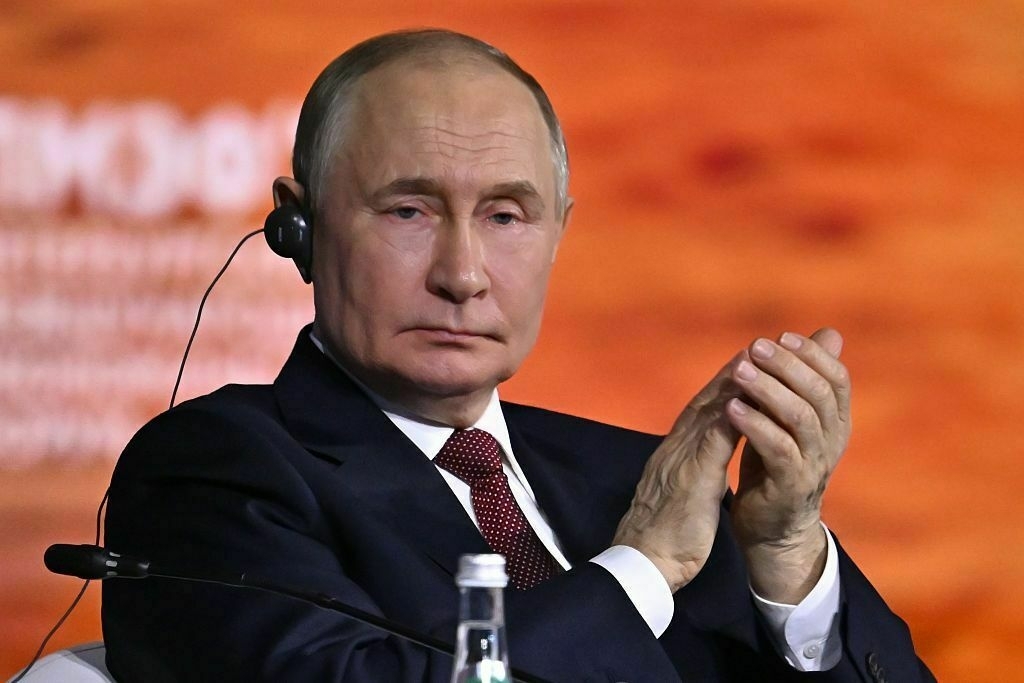-
Ukrainian deputy prime minister suspected of corruption in high-profile case
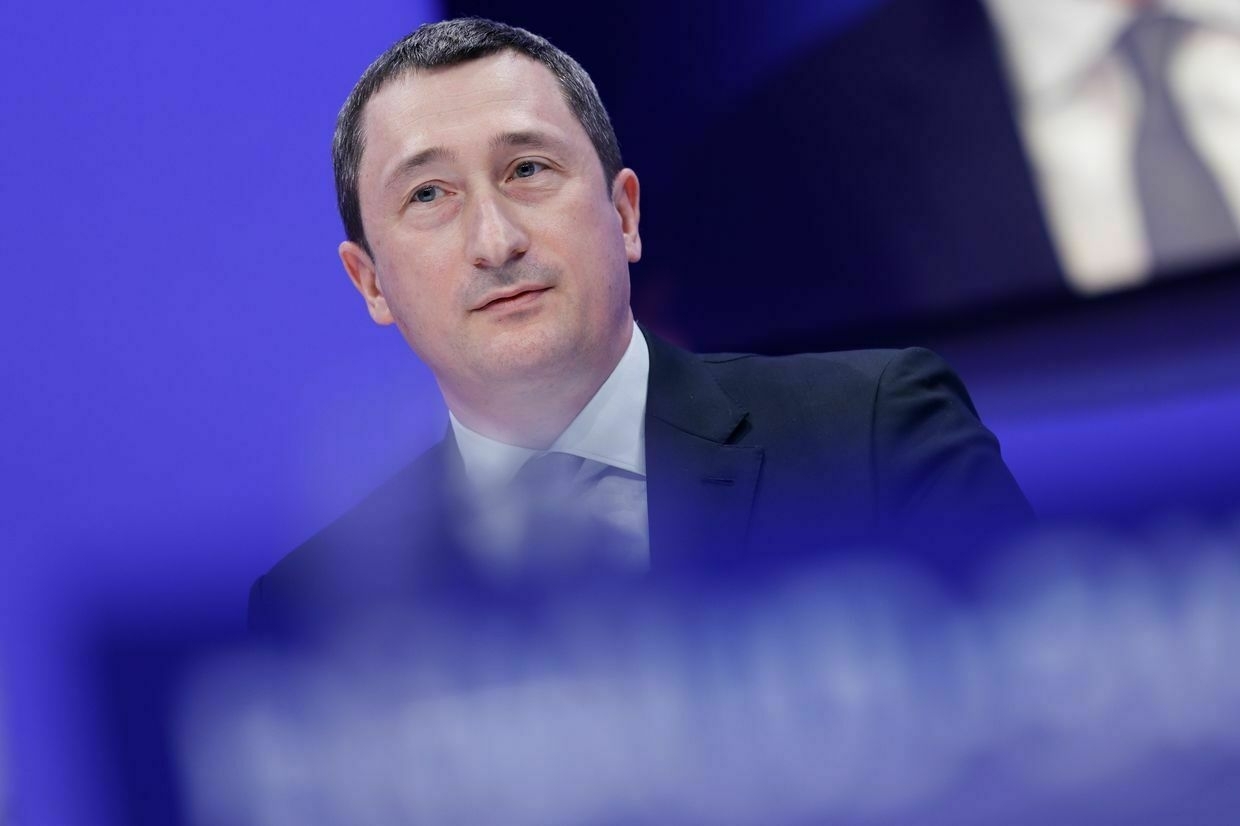
Editor’s note: This is a developing story and is being updated with additional details.
Ukrainian Deputy Prime Minister Oleksii Chernyshov has been formally named a suspect in a high-profile illegal land grab case, becoming the highest-ranking official in Ukrainian history to face such charges while in office.
After reports and public speculation around Chernyshov’s potential involvement, the National Anti-Corruption Bureau (NABU) on June 23 released a statement announcing that he was the sixth suspect in a “large-scale” corruption scheme lead by a property developer from Kyiv who illegally claimed a land plot to build a residential complex.
Chernyshov, who heads the new National Unity Ministry in charge of returning refugees, is a close ally of President Volodymyr Zelensky. He raised eyebrows in Ukraine after leaving the country on June 16, just three days after law enforcement revealed a massive corruption scheme and detained two of his former close associates — Maksym Horbatiuk and Vasyl Volodin.
According to the anti-corruption agency, during his time as Development of Communities and Territories Minister in 2020-2022, Chernyshov and his associates undervalued land plots by five times to benefit the developer, which Ukrainian media identified as Serhii Kopystyra, which allegedly cost the state Hr 1 billion ($24 million).
In exchange, NABU says the developer gave kickbacks to Chernyshov and his accomplices with “significant” discounts on apartments, totaling over Hr 14.5 million ($346,000). Ukrainska Pravda reports this took place between 2021-2022.
NABU and Ukraine’s Specialized Anti-Corruption Prosecutor’s Office (SAPO) seized the plot to prevent the scheme. Most of the illegally obtained apartments have been seized.
Chernyshov arrived back in the country on June 22 after suspicions mounted in Ukraine that he was on the run and avoiding detention. In a Facebook post, the minister said he was back from an “important” business trip and said he was being targeted by a “discreditation campaign.”
After arriving at NABU offices on June 23, he wrote on Facebook that he had a “constructive chat” with detectives and will cooperate with the organization. Hours before, he maintained his innocence.
An investigation into Chernyshov and two of his associates took place last year after suspicions arose, according to Ukrainska Pravda. However, sources in anti-corruption agencies told Ukrainska Pravda that the head of NABU, Semen Kryvonos, blocked police searches due to his close relationship with Chernyshov.
Chernyshov was appointed head of state-owned energy giant Naftogaz in 2022 after the dissolution of the Communities and Territories Development Ministry. He became the national unity minister in December 2024, a ministry created from scratch.
Deputy PM Chernyshov returns to Ukraine as questions mount amid corruption probeDeputy Prime Minister Oleksii Chernyshov returned to Ukraine on June 22 following his official trip abroad amid media speculations connecting Chernyshov’s absence to an ongoing corruption investigation.The Kyiv IndependentDmytro Basmat
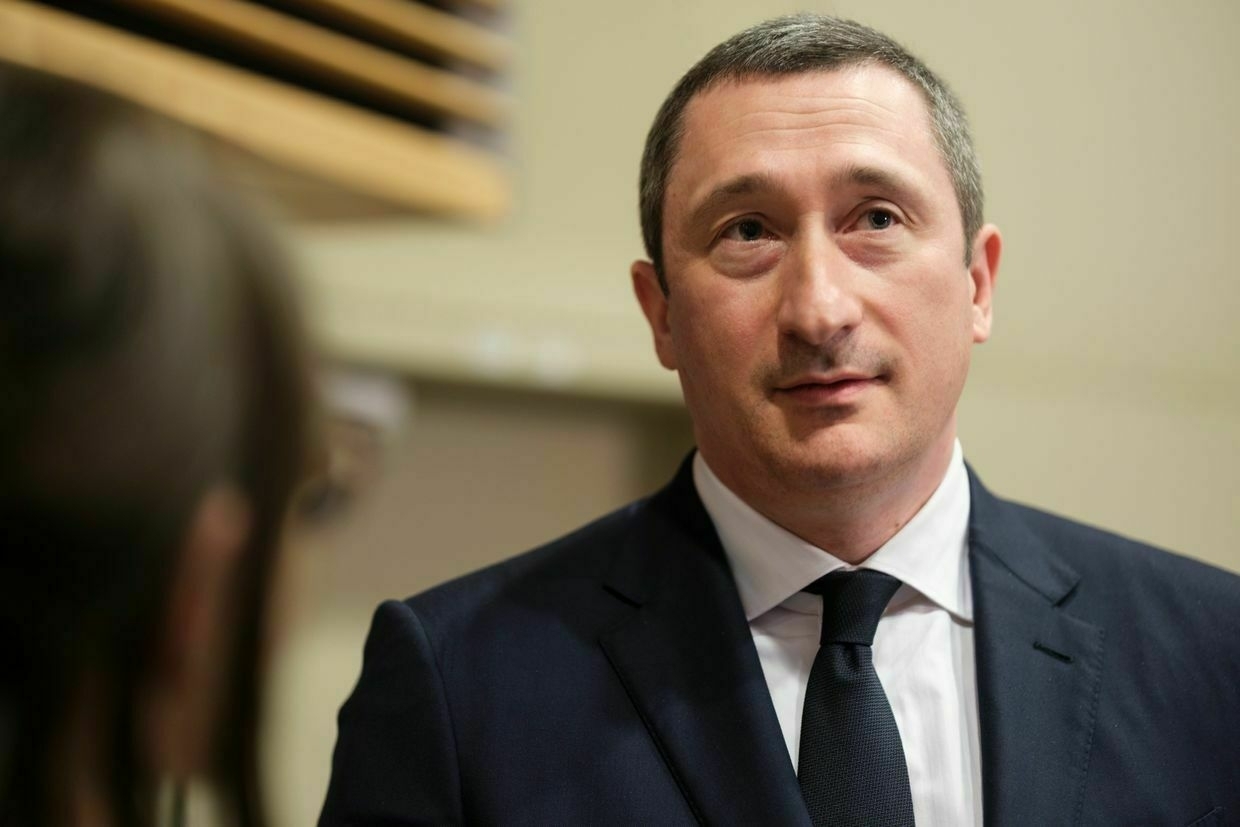
-
Amid Iran-Israel tensions, Trump calls for action to keep oil prices down

U.S. President Donald Trump on June 23 called for urgent measures to prevent rising oil prices amid escalating tensions with Iran.
“Everyone, keep oil prices down. I’m watching,” Trump wrote on Truth Social. “To the Department of Energy: Drill, baby, drill! And I mean now."
The post comes after global oil prices surged on June 13 following a series of Israeli air strikes on Iranian nuclear facilities. The escalation sparked fears of broader conflict in the energy-rich Middle East, home to critical oil shipping routes.
The surge in oil prices risks undermining Western attempts to curb Russia’s war funding, as the Kremlin relies heavily on oil revenues to sustain its invasion of Ukraine. President Volodymyr Zelensky has warned that a price surge could further embolden the Kremlin.
On June 21, the U.S. joined Israel in conducting airstrikes that targeted three nuclear facilities in Iran — Fordow, Natanz, and Esfahan. The operation triggered a strong response from Tehran, which threatened to block the Strait of Hormuz, a key global oil transit route.
U.S. Vice President JD Vance responded on June 22 that any Iranian attempt to shut the strategic waterway would “destroy their own economy.” The strait is a vital chokepoint for global energy supplies, with nearly a fifth of the world’s oil passing through it daily.
Amid the turmoil, the EU has reportedly postponed plans to tighten the $60-per-barrel price cap on Russian crude, originally imposed in December 2022. The mechanism restricts Western firms from shipping or insuring Russian oil sold above that threshold.
The Russian Finance Ministry has relied heavily on energy revenues to sustain defense spending, which hit record highs this year.
Ukraine has evidence Russia prepares military operations in Europe, Zelensky says“We are observing a continued intellectual decline within the Russian leadership and have evidence that they are preparing new military operations on European territory,” President Volodymyr Zelensky said.The Kyiv IndependentNatalia Yermak
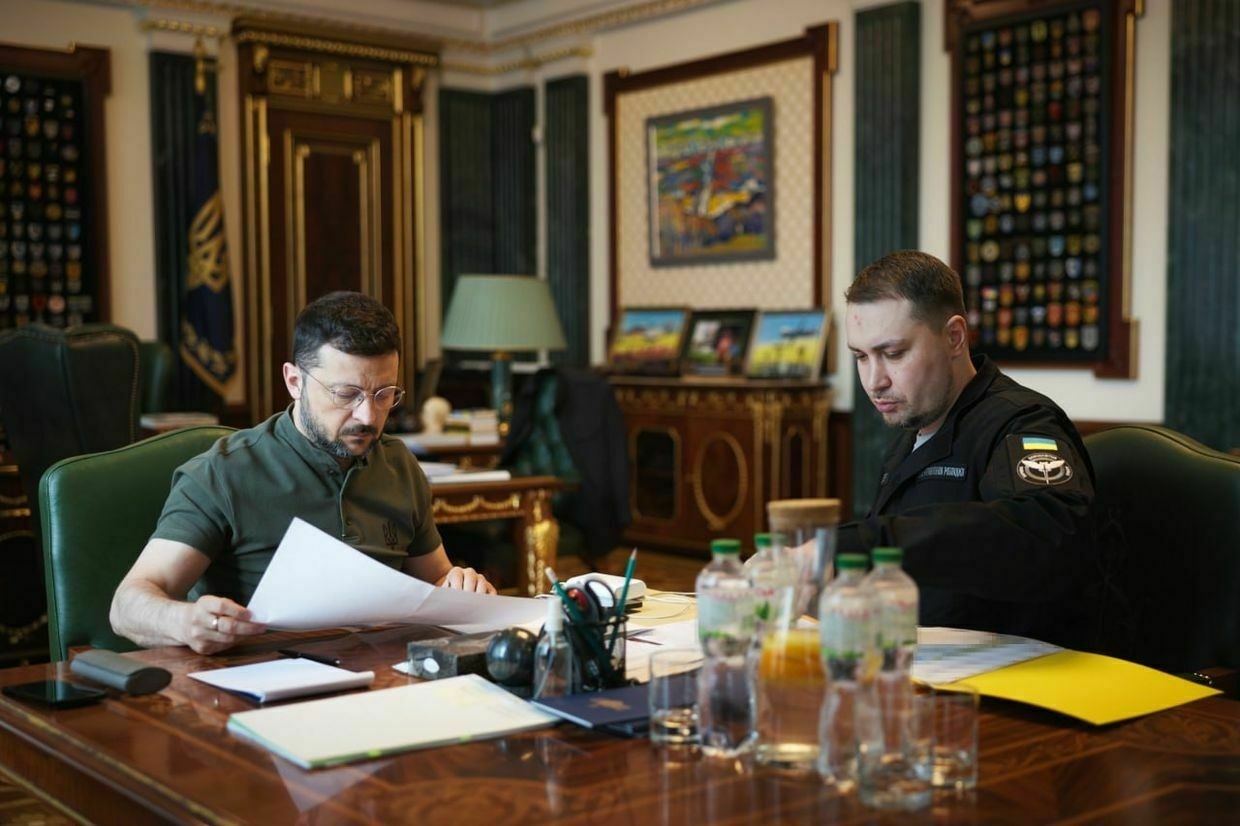
-
Ukraine state grid operator appoints CEO after 10-month vacancy, Ukrainian media report

Ukrainian state grid operator Ukrenergo’s supervisory board has appointed Vitaliy Zaichenko, the company’s current chief dispatcher, as its new head, Ukrainian media reported on June 23.
The appointment comes after ten months of interim leadership following the controversial dismissal of former CEO Volodymyr Kudrytskyi in September 2024.
The company has been under temporary management of Oleksiy Brekht while the supervisory board struggled with prolonged disputes over the selection process.
Ukrenergo, which operates Ukraine’s electricity transmission system and is a member of the European electricity grid network (ENTSO-E), plays a critical role in the country’s energy security, especially during wartime when Russian attacks have repeatedly targeted energy infrastructure.
Zaichenko beat out two other finalists: Oleksiy Brekht, the interim head of Ukrenergo, and Ivan Yuryk, former acting head of Ukrainian Railways.
The supervisory board’s June 4 attempt to elect a new CEO failed amid conflict with the Energy Ministry, which changed appointment rules without consulting the Energy Community Secretariat, drawing criticism from European partners.
The new rules complicated the selection process by requiring five out of seven supervisory board votes instead of the previous four needed to elect a chairman.
According to Ukrainian MP Max Khlapuk, the European Bank for Reconstruction and Development (EBRD) threatened to block 141 million euros ($152 million) in funding and demand early repayment of 533 million euros ($574 million) already received over the rule changes.
Former Ukrenergo CEO Volodymyr Kudrytskyi was dismissed on Sept.2, 2024, after President Volodymyr Zelensky called for his resignation over alleged failures to protect substations from Russian missiles and drones.
Kudrytskyi disputed this account, saying he initiated the supervisory board meeting himself, though he did not reveal the reasons for his dismissal.
Following Kudrytskyi’s dismissal, supervisory board chairman Daniel Dobbeni and member Peder Andersen resigned early, citing political pressure in personnel decisions.
Ukrainian energy giant to build $115 million solar program with British partnerUkraine’s largest private energy company DTEK and British clean energy group Octopus Energy have launched a program to install rooftop solar panels and battery storage systems at Ukrainian businesses and public institutions, DTEK announced in a press release on June 23. The Kyiv IndependentYana Prots
The Kyiv IndependentYana Prots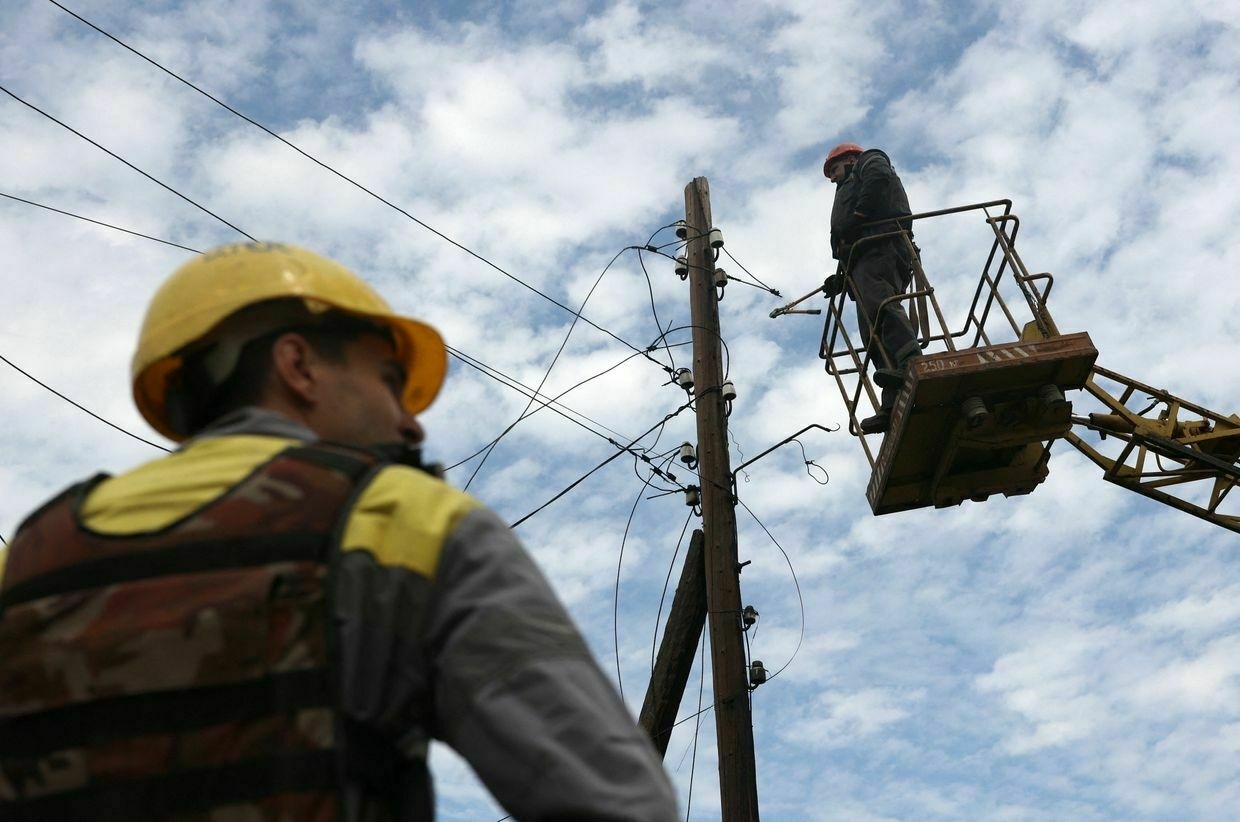
-
Russia ordered 2 assassination attempts on popular journalist Dmytro Gordon, Ukraine security service says
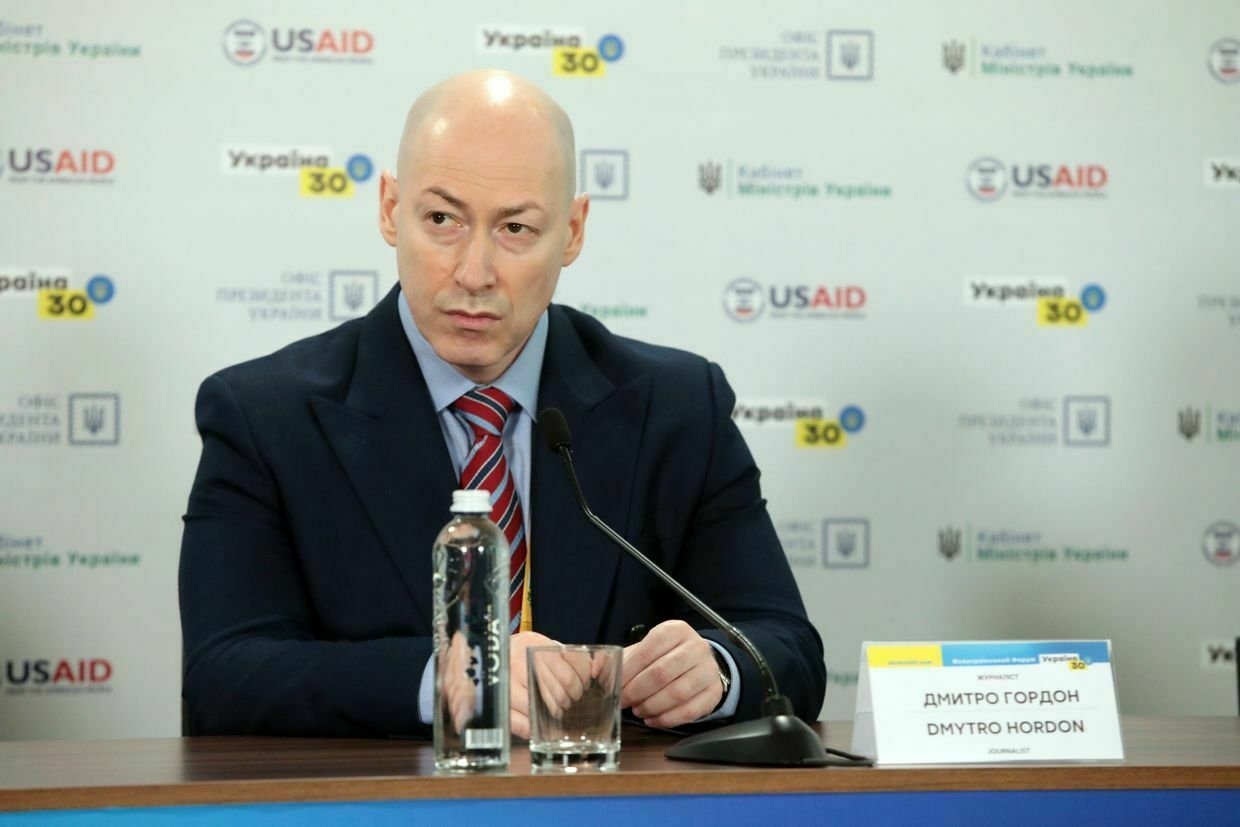
Russian President Vladimir Putin in 2023 authorized the ordering of at least two attempts to assassinate Ukrainian journalist Dmytro Gordon, Security Service of Ukraine (SBU) head Vasyl Maliuk told media on June 23, RBC-Ukraine reports.
Gordon is a prominent journalist and media personality popular in both Ukraine and other post-Soviet countries, known for his sharp criticism of Russian aggression. His YouTube channel has 4.5 million subscribers.
“Gordon triggers Russians. He has a large audience in Russia and in the (Russian) occupied territories (of Ukraine),” Maliuk said. “There are two networks that worked on Gordon that we can speak (publicly) about."
According to the SBU, the first network was led by a former lawmaker from the now-banned pro-Russian Party of Regions, originally from Poltava Oblast. The agency did not name the lawmaker.
The former MP was allegedly tasked by Russia’s Federal Security Service (FSB) with coordinating surveillance and preparations for a strike that would kill Gordon.
“The plan was to use a homemade explosive device or coordinate a missile or a drone strike — but only if Gordon’s presence in the targeted house was confirmed,” Maliuk said.
The SBU had already been investigating the ex-lawmaker for involvement in a separate railway bombing case in Poltava Oblast when the assassination plot was uncovered. The group was arrested before executing the plan.
The second assassination team, Maliuk said, was a criminal group from Dagestan working secretly for the FSB under the cover of being fugitives from Russian law enforcement.
"They sent this individual here long before the full-scale war. He carried out FSB tasks all the time — very professionally, very covertly," Maliuk said.
The group monitored Gordon's movements and residence, planning to assassinate him either with a short-barreled weapon if he was alone, or with a rifle and follow-up pistol shot if accompanied by a bodyguard.
The SBU detained the group, and its leader confessed to preparing the hit on Moscow's orders. He said he had been promised $400,000 for the killing.
Gordon, who has become a high-profile figure on Ukraine's information front, regularly uses his platform to expose Russian disinformation and advocate for Ukrainian sovereignty.
Lion attacks collaborator at safari park in Russian-occupied CrimeaFollowing Russia’s illegal annexation of Crimea in 2014, Oleg Zubkov renounced his Ukrainian citizenship and began cooperating with the Russian authorities.The Kyiv IndependentKateryna Hodunova
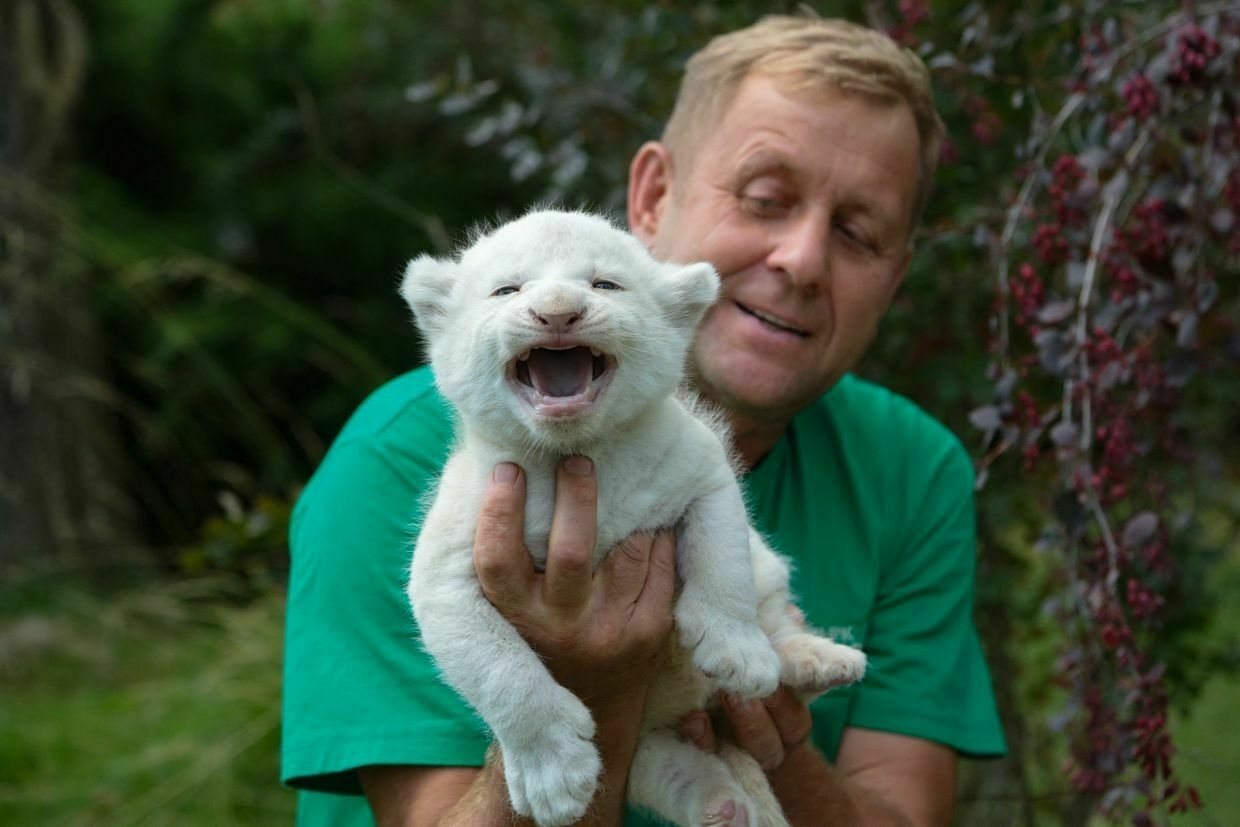
-
Russian summer offensive FAILS, as Ukraine stands firm | Front Line with @StarskyUA
-
Ukrainian energy giant to build $115 million solar program with British partner
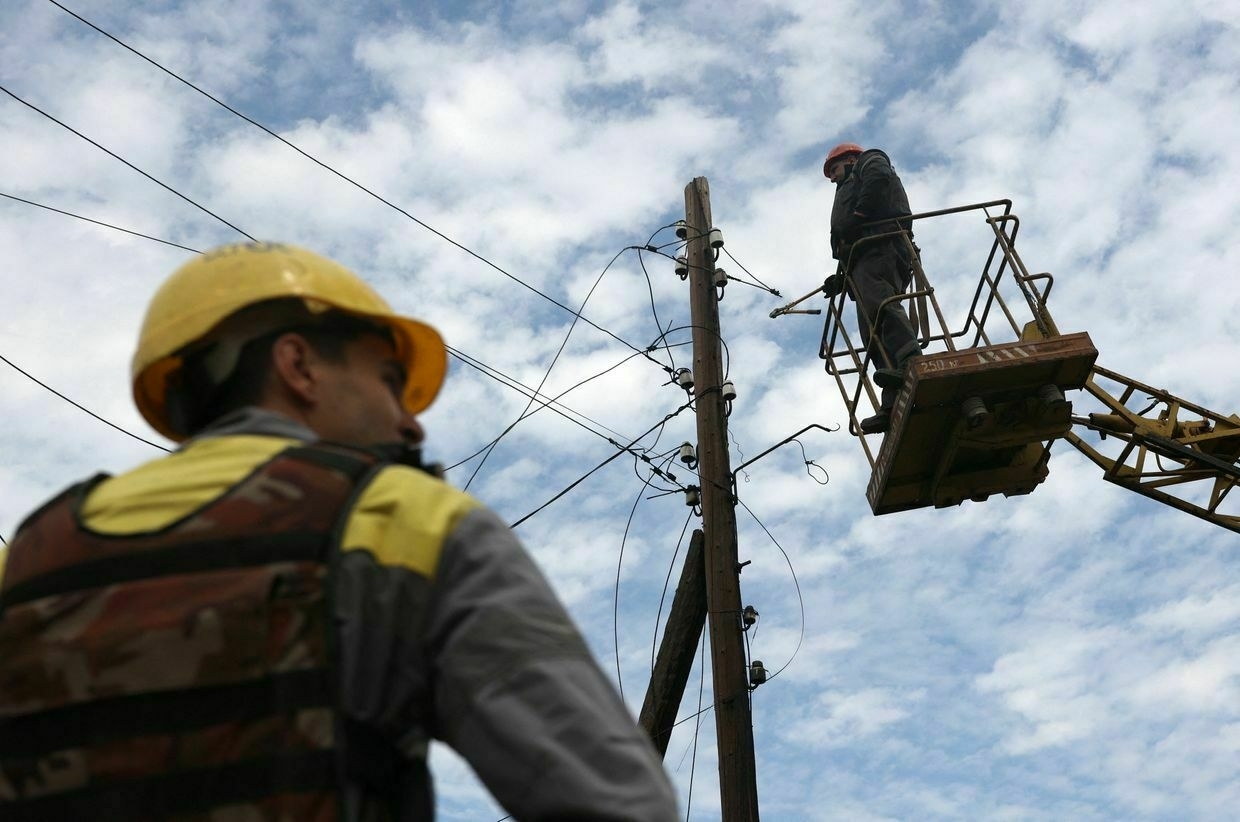
Ukraine’s largest private energy company DTEK and British clean energy group Octopus Energy have launched a program to install rooftop solar panels and battery storage systems at Ukrainian businesses and public institutions, DTEK said in a press release on June 23.
The program, called RISE (Resilient Independent Solar Energy), was announced at Octopus Energy’s Tech Summit in London and aims to raise 100 million euros ($115 million) to finance 100 energy projects over three years, helping stabilize the grid, lower electricity costs and protect customers from outages, the company said.
DTEK’s facilities have been repeatedly targeted since the start of Russia’s full-scale invasion as Moscow sought to cripple Ukraine’s energy infrastructure. The company was forced to shut down its gas production facilities in Poltava Oblast in March.
“About 70% of Ukraine’s thermal generation capacity has been damaged, destroyed or seized since the full-scale invasion,” said DTEK CEO Maksym Timchenko in the press release.
“This has created not only an urgent need to rebuild but also an opportunity to accelerate the shift to a decentralized, renewable energy system,” he added.
The alternative energy systems will be installed by D.Solutions, DTEK’s business unit operating under the Yasno retail brand.
Installed equipment will run on Octopus Energy’s AI-powered Kraken operating system, enabling businesses to optimize energy use in real time, reduce consumption during peak hours and sell surplus electricity back to the grid.
“They (DTEK) are rebuilding at pace and pioneering a decentralized, smart energy system powered by homegrown renewables,” said Greg Jackson, Octopus Energy Group founder and CEO.
According to DTEK, Ukraine’s commercial and industrial energy market has an untapped potential of 300 megawatts annually, valued at 200 million euros ($229 million). DTEK’s Yasno brand serves over 60,000 business customers and can generate projects worth 30 million euros per year.
DTEK previously announced plans to build one of Europe’s largest energy storage facilities with six installations across the country, totaling 200 megawatts to power 600,000 households. The company secured a $72 million loan from three Ukrainian banks.
Russia pulls its scientists out of Iranian nuclear plant, as Israeli strikes threaten decades of collaborationIsrael’s strikes on Iranian nuclear facilities have alarmed none more than Russia, the country that first brought nuclear power to Iran in defiance of Western objections. We’re “millimeters from catastrophe,” said Kremlin spokeswoman Maria Zakharova on June 18 in response to a bombing campaign that Israel launched against Iran on June 13. Decades of conflict with the West have united Iran and Russia, despite a cultural gulf between the two nations that dwarfs the Caspian Sea that physically di The Kyiv IndependentKollen Post
The Kyiv IndependentKollen Post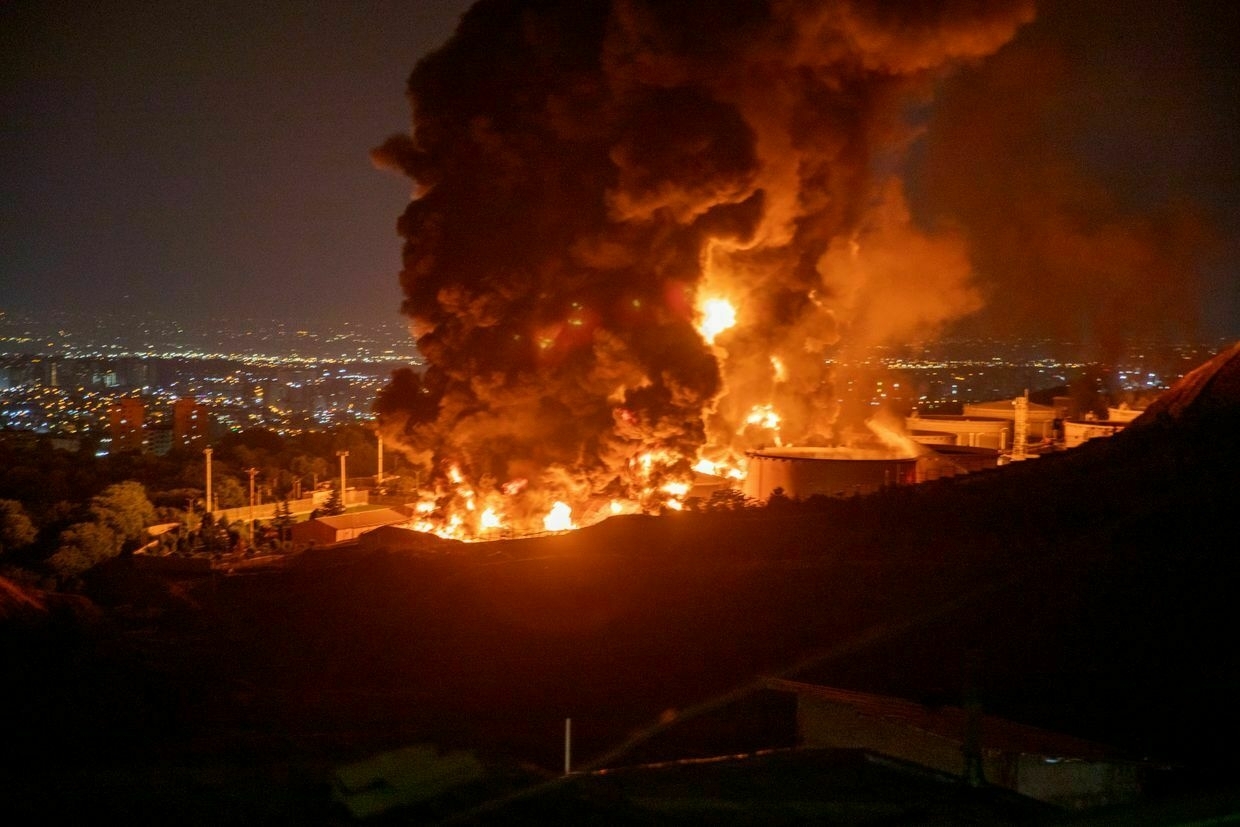
-
Lion attacks collaborator at safari park in Russian-occupied Crimea
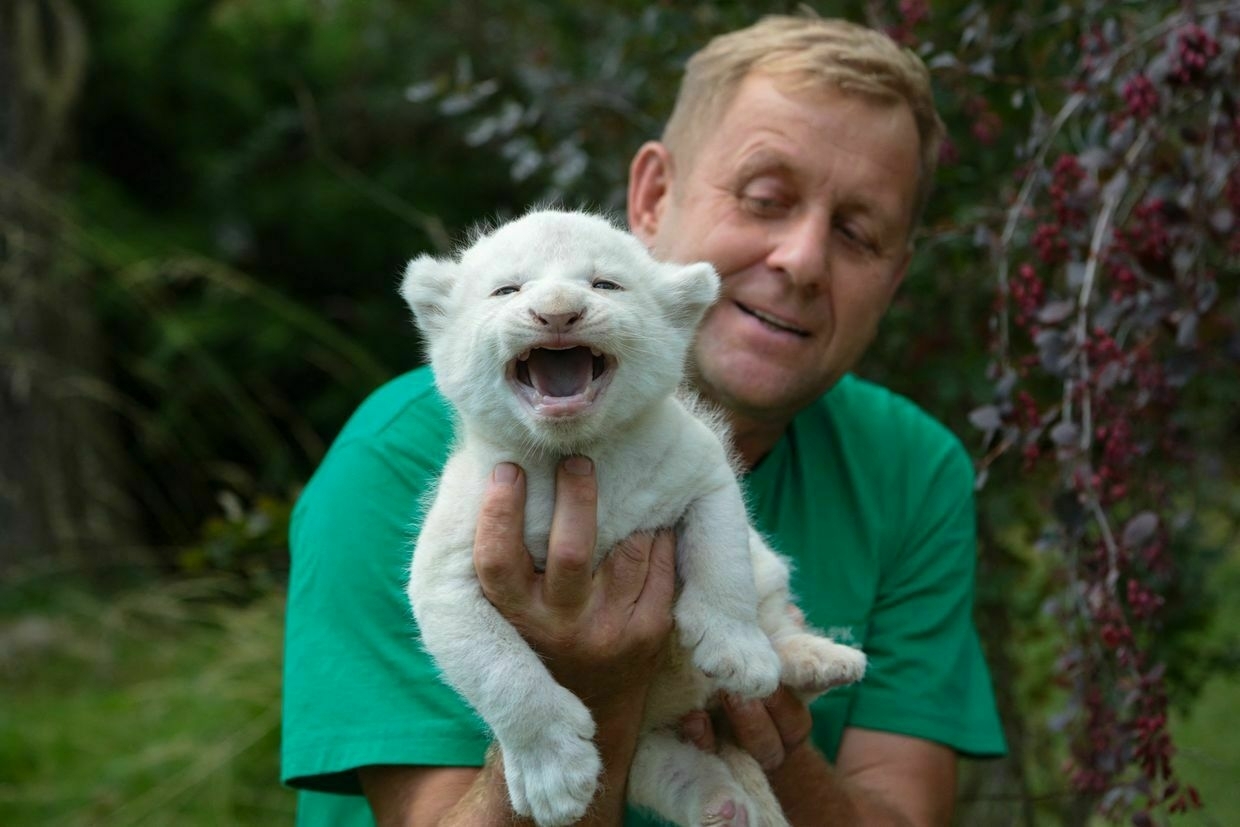
A lion has attacked collaborator Oleg Zubkov at the Taigan Safari Park he founded in Russian-occupied Crimea, the Crimean Wind Telegram channel reported on June 22.
Zubkov is a businessman who renounced his Ukrainian citizenship and began cooperating with the Russian authorities following Moscow’s illegal annexation of Crimea in 2014
He also smuggled animals from zoos in the partially occupied Zaporizhzhia and Kherson oblasts after the full-scale invasion of Ukraine in 2022.
During an evening feeding, Zubkov was attacked by a lion which tore his trachea, neck, and chest muscles with its claws. He managed to leave the lion’s enclosure but then lost consciousness.
As a result of the attack, Zubkov lost a significant amount of blood and was transported by helicopter to a hospital in Simferopol, Crimea.
Zubkov regained consciousness on June 23 after surgery, and his condition is described as stable.
This is not the first time lions at the Taigan Safari Park have attacked its staff. In 2024, three lions killed Leokadia Perevalova while she was cleaning an enclosure. Perevalova had worked at the park for 17 years.
Russia pulls its scientists out of Iranian nuclear plant, as Israeli strikes threaten decades of collaborationIsrael’s strikes on Iranian nuclear facilities have alarmed none more than Russia, the country that first brought nuclear power to Iran in defiance of Western objections. We’re “millimeters from catastrophe,” said Kremlin spokeswoman Maria Zakharova on June 18 in response to a bombing campaign that Israel launched against Iran on June 13. Decades of conflict with the West have united Iran and Russia, despite a cultural gulf between the two nations that dwarfs the Caspian Sea that physically di The Kyiv IndependentKollen Post
The Kyiv IndependentKollen Post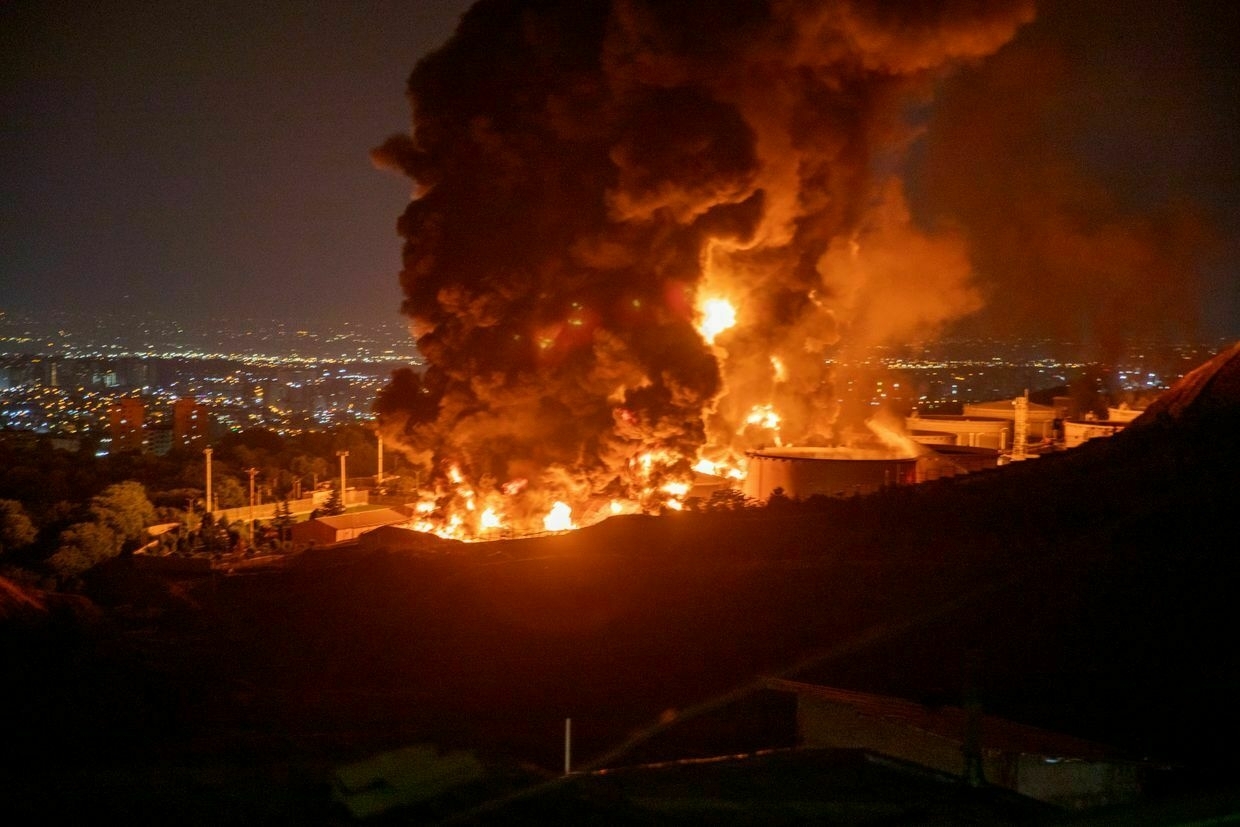
-
Ukraine returns bodies of 3 Russian soldiers repatriated as remains of Ukrainians, Interior Ministry says
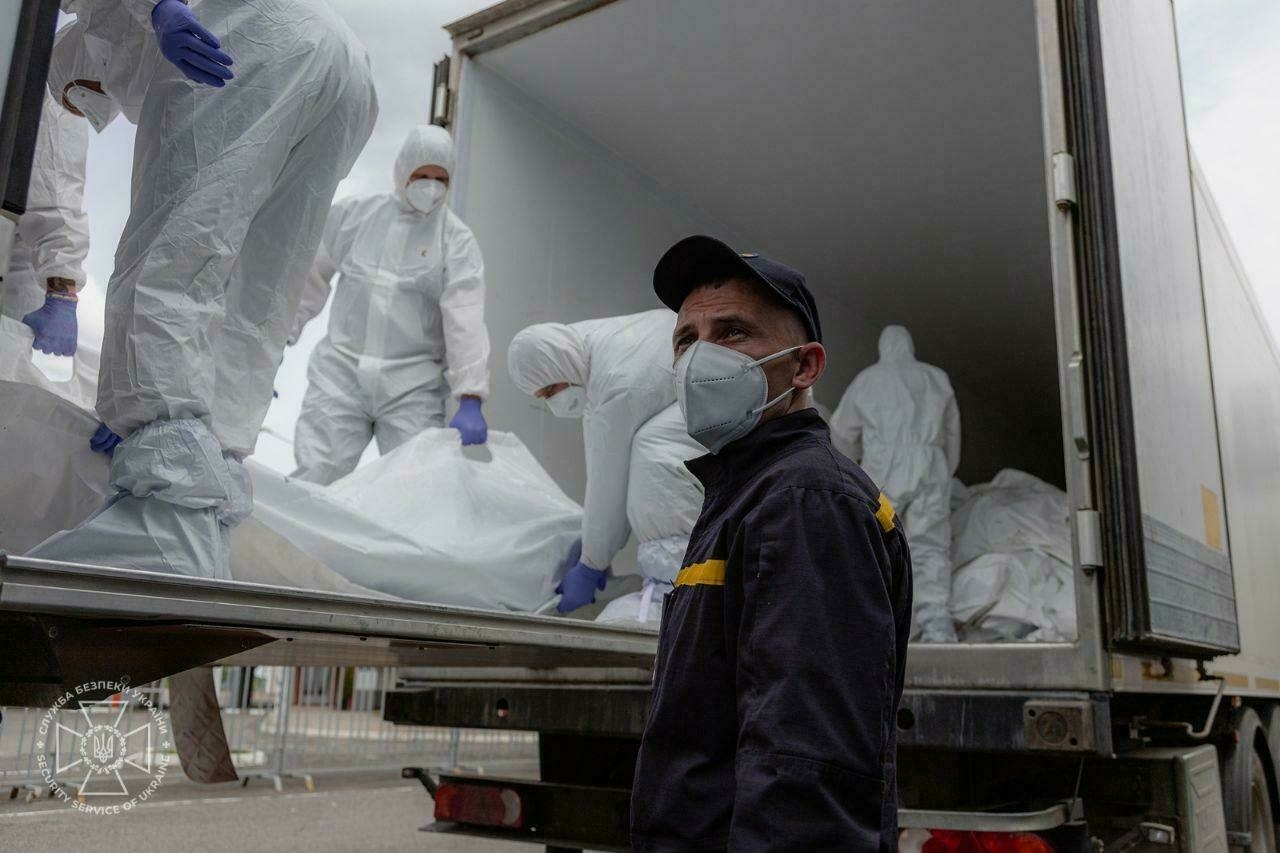
Ukraine has returned the remains of three Russians who were handed over to Kyiv as part of an exchange of fallen soldiers' bodies, Interior Minister Ihor Klymenko told Interfax Ukraine on June 23.
Ukraine has said the practice of passing off the bodies of Russian soldiers as Ukrainian is part of an attempt to obscure the scale of its military losses from the Russian public, and at least 20 such incidents have been recorded during recent repatriations conducted under the Istanbul agreements.
Russia did not comment on the discovery made by the Ukrainian side, while Klymenko said during a press conference on June 23 that it could be done to “sow chaos” during the identification of the soldiers' bodies.
Personal badges, chevrons, documents, military uniforms elements, and footwear typical of the Russian Armed Forces were found during the bodies examination transferred by Russia to Ukraine, Ukraine’s Interior Ministry said.
According to Klymenko, the bodies were transferred to Russia after confirmation that they belong to Russians. The other 17 bodies have not yet been handed over to Moscow, as examinations continues.
“We are waiting for the DNA of relatives. Therefore, we want the relatives (of Russians) to submit their DNA so that we can confirm,” Klymenko told Interfax Ukraine. “I gave an order to prohibit the release of these bodies to the Russians until there is a 100% confirmation."
The Interior Ministry’s experts conduct up to 10,000 examinations per month to identify individuals, and one fragment of remains can be examined up to five times, Klymenko said.
“The bodies of our heroes come back extremely mutilated. There are objective reasons for this, such as an ongoing war and widespread use of weapons. At the same time, we have recorded cases when the remains of one person were returned during different stages of repatriation, which complicates our work,” Klymenko said.
The June 2 negotiations in Istanbul resulted in the most expansive prisoner and body exchange agreement of the full-scale war, although no ceasefire was reached.
Ukraine received a total of 6,057 bodies of its fallen soldiers as part of the phased exchange. Russia, according to Kremlin aide and negotiator Vladimir Medinsky, took back 78.
Explaining the difference between the two numbers, President Volodymyr Zelensky on June 20 said that the bodies of the vast majority of Russian soldiers currently killed on the battlefield remain in Russian hands.
“They were advancing, and their dead remained in the territory where they were,” he said.
Russia accused Kyiv on June 7 of rejecting a proposed body return, publishing footage allegedly showing Ukrainian corpses stored in refrigeration units. Ukraine dismissed the claims, saying the footage was filmed on Russian territory, not at a designated handover site.
Kyiv has consistently called for an “all-for-all” exchange of prisoners of war, but Moscow has so far refused to agree to a comprehensive swap.
‘Unwanted by their homeland’ — Ukraine confirms Russia returned bodies of its soldiers disguised as Ukrainian“This is yet another proof of how Russia treats its people with contempt,” Interior Minister Ihor Klymenko said. The Kyiv IndependentTim Zadorozhnyy
The Kyiv IndependentTim Zadorozhnyy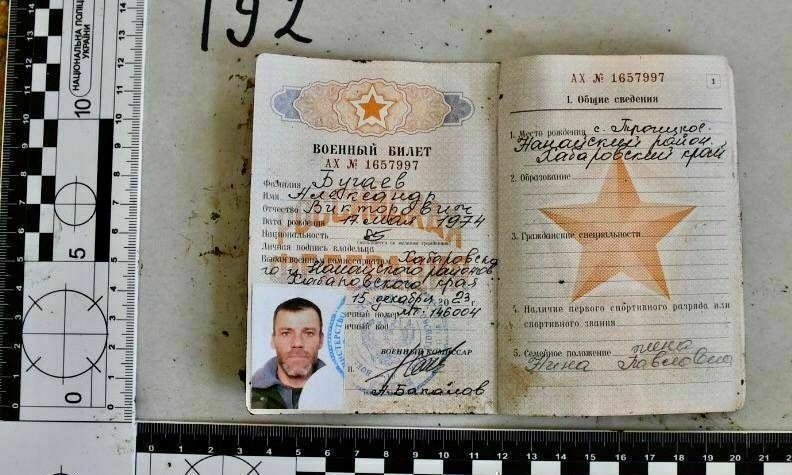
-
Zelensky arrives in UK to boost defense cooperation as Russia intensifies attacks against Ukraine
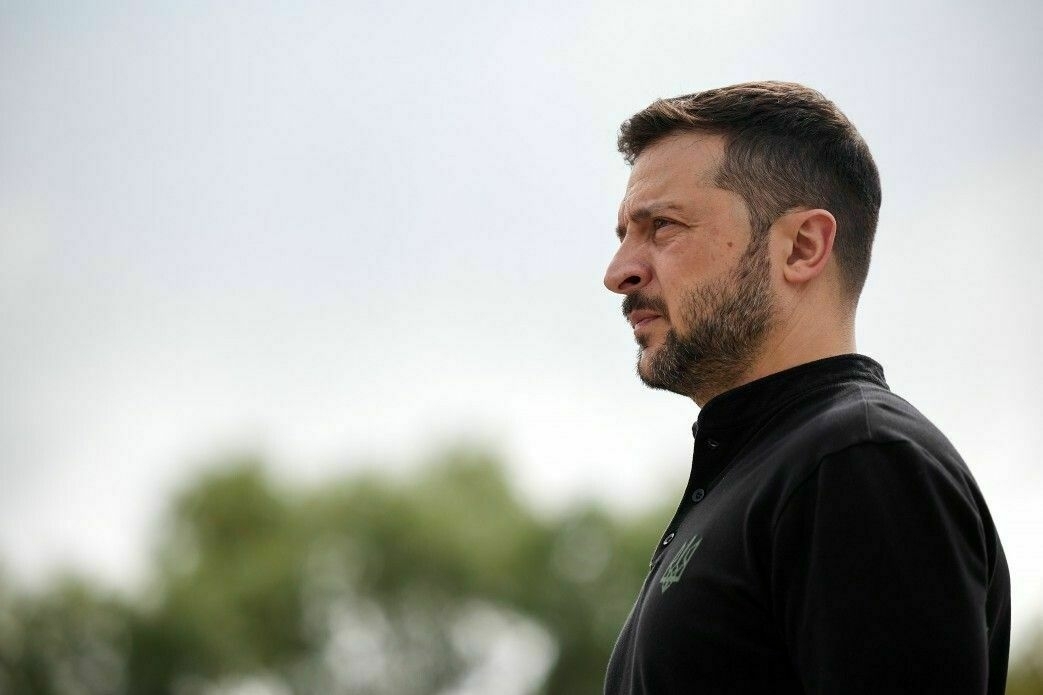
President Volodymyr Zelensky arrived in the U.K. on June 23 to conduct several meetings with “a primary goal” of deepening defense cooperation, presidential spokesperson Serhii Nykyforov said in comments reported by Ukrinform.
Zelensky’s visit comes just a few hours after yet another Russian attack on Kyiv, which killed at least seven and injured almost 30 people. A residential buliding was partially destroyed in a direct ballistic missile hit.
In the U.K., Zelensky is to meet with King Charles III, British Prime Minister Keir Starmer, as well as with the speakers of both houses of parliament, Lindsay Hoyle and John McFall, according to Nykyforov.
Zelensky is also scheduled to meet with Ukrainian military personnel undergoing training in the U.K. and representatives of think tanks.
This year, the U.K. has allocated 4.5 billion pounds ($5.8 billion) for military assistance to Ukraine, marking its largest annual commitment so far.
London remains one of Kyiv’s most steadfast military partners, providing long-range missiles, armored vehicles, training, and political support against Russian aggression.
Russia pulls its scientists out of Iranian nuclear plant, as Israeli strikes threaten decades of collaborationIsrael’s strikes on Iranian nuclear facilities have alarmed none more than Russia, the country that first brought nuclear power to Iran in defiance of Western objections. We’re “millimeters from catastrophe,” said Kremlin spokeswoman Maria Zakharova on June 18 in response to a bombing campaign that Israel launched againstThe Kyiv IndependentKollen Post
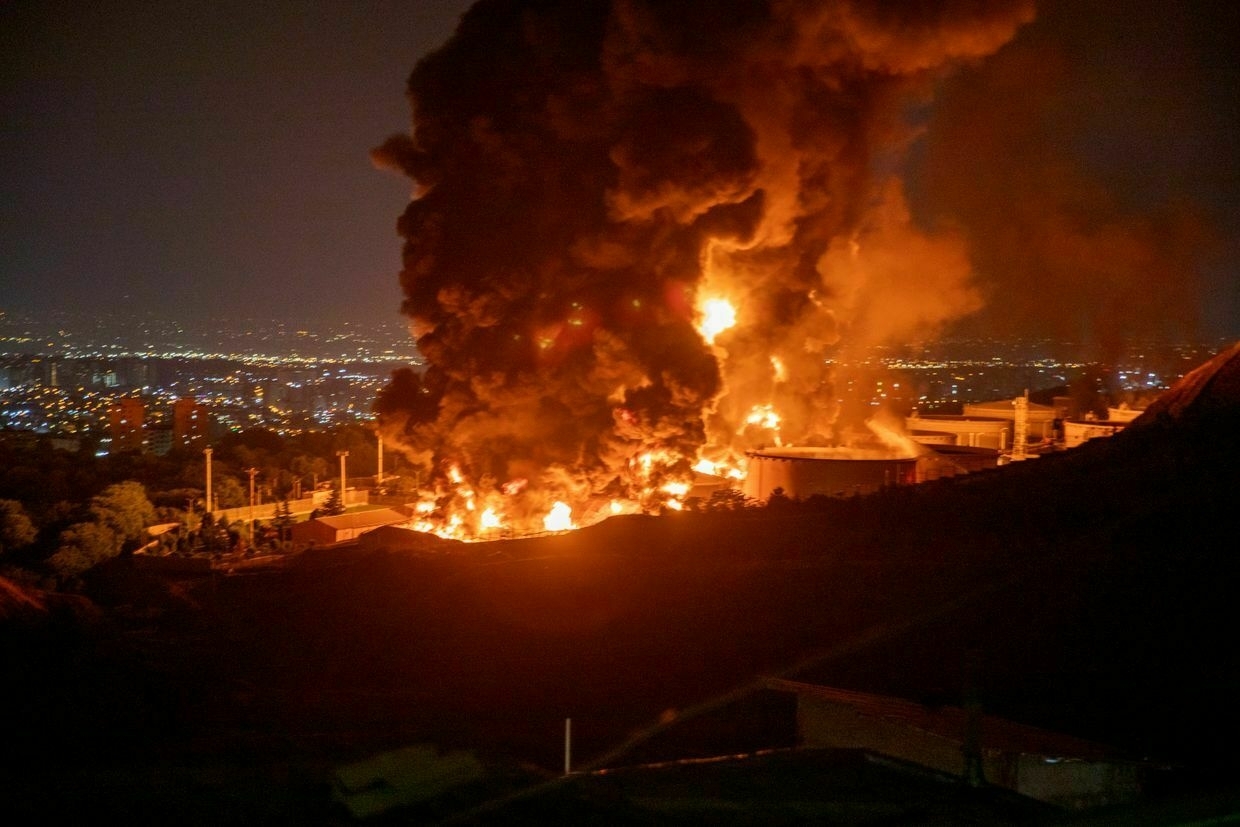
-
After 40 months of waging full-scale war on Ukraine, Putin condemns 'unprovoked aggression against Iran'
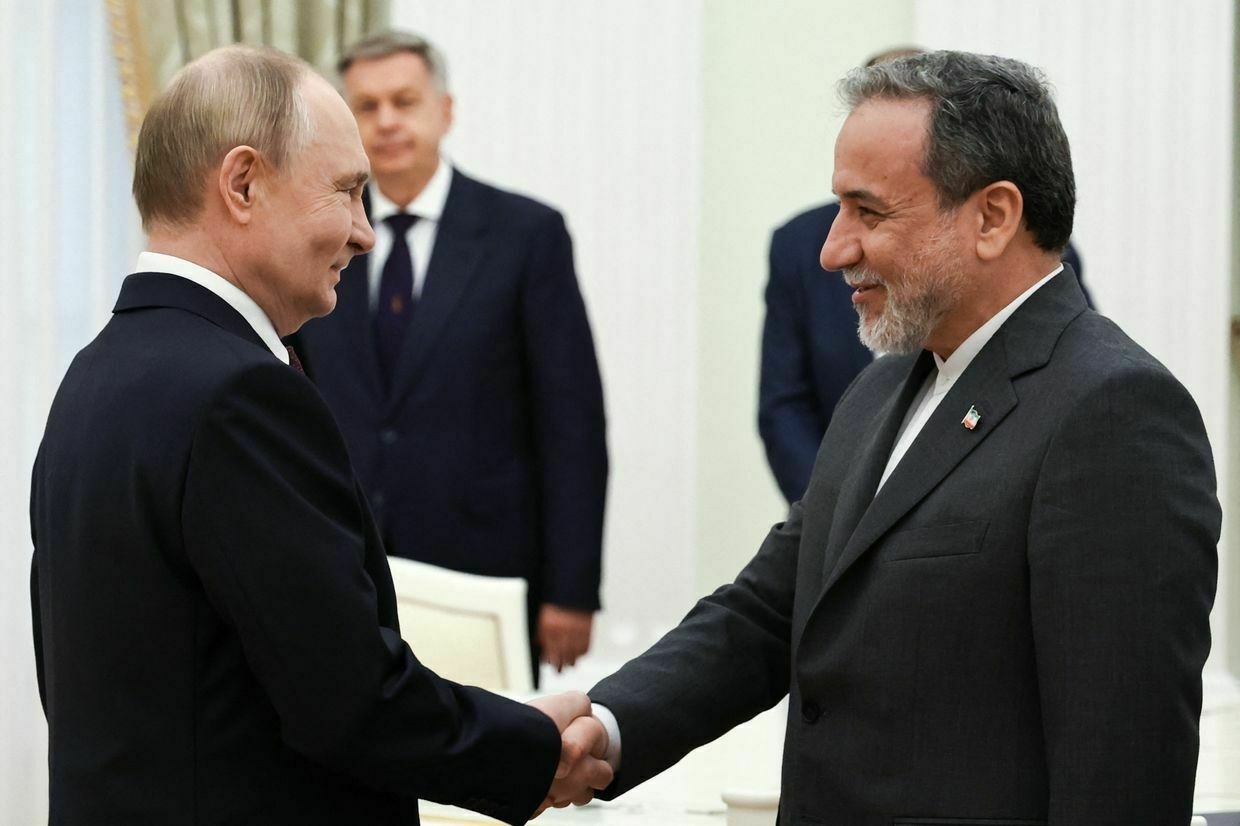
Russian President Vladimir Putin has condemned U.S. strikes on Iran as “completely unprovoked aggression,” more than three years into his completely unprovoked full-scale invasion of Ukraine.
Putin made the comments at the Kremlin during a meeting with Iran’s Foreign Minister Abbas Araghchi, after U.S. President Donald Trump’s announcement of successful air strikes on three nuclear facilities in Iran, Fordow, Natanz, and Esfahan, conducted in coordination with Israel over the weekend.
“The completely unprovoked aggression against Iran has no basis and no justification,” Putin said, adding that Russia “is making efforts to provide assistance to the Iranian people.”
Since Russia launched its full-scale invasion of Ukraine, Moscow has killed tens of thousands of Ukrainian civilians, and the true extent of the death toll is simply not known.
Russia’s full-scale invasion of Ukraine was a clear and direct violation of both international law and the UN Charter.
Russia has deepened military and political ties with Tehran since and Iran has supplied Moscow with thousands of Shahed-type attack drones used in routine strikes on Ukrainian cities, as well as short-range ballistic missiles.
Russia and Iran have cooperated to develop their own nuclear programs as both countries face Western sanctions. Russia supplied Iran with the Middle East’s first nuclear power plant despite objections from the West.
Russia pulls its scientists out of Iranian nuclear plant, as Israeli strikes threaten decades of collaborationIsrael’s strikes on Iranian nuclear facilities have alarmed none more than Russia, the country that first brought nuclear power to Iran in defiance of Western objections. We’re “millimeters from catastrophe,” said Kremlin spokeswoman Maria Zakharova on June 18 in response to a bombing campaign that Israel launched againstThe Kyiv IndependentKollen Post
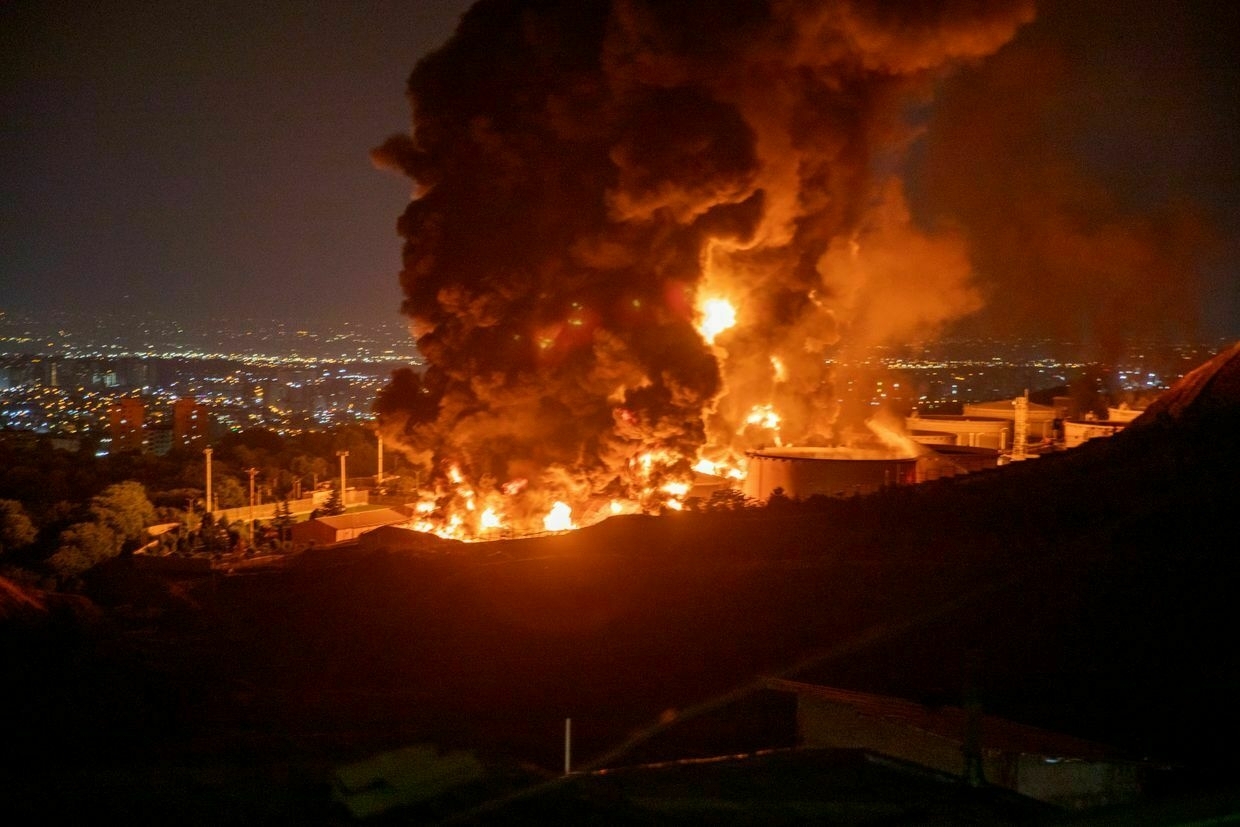
-
General Staff: Russia has lost 1,012,500 troops in Ukraine since Feb. 24, 2022
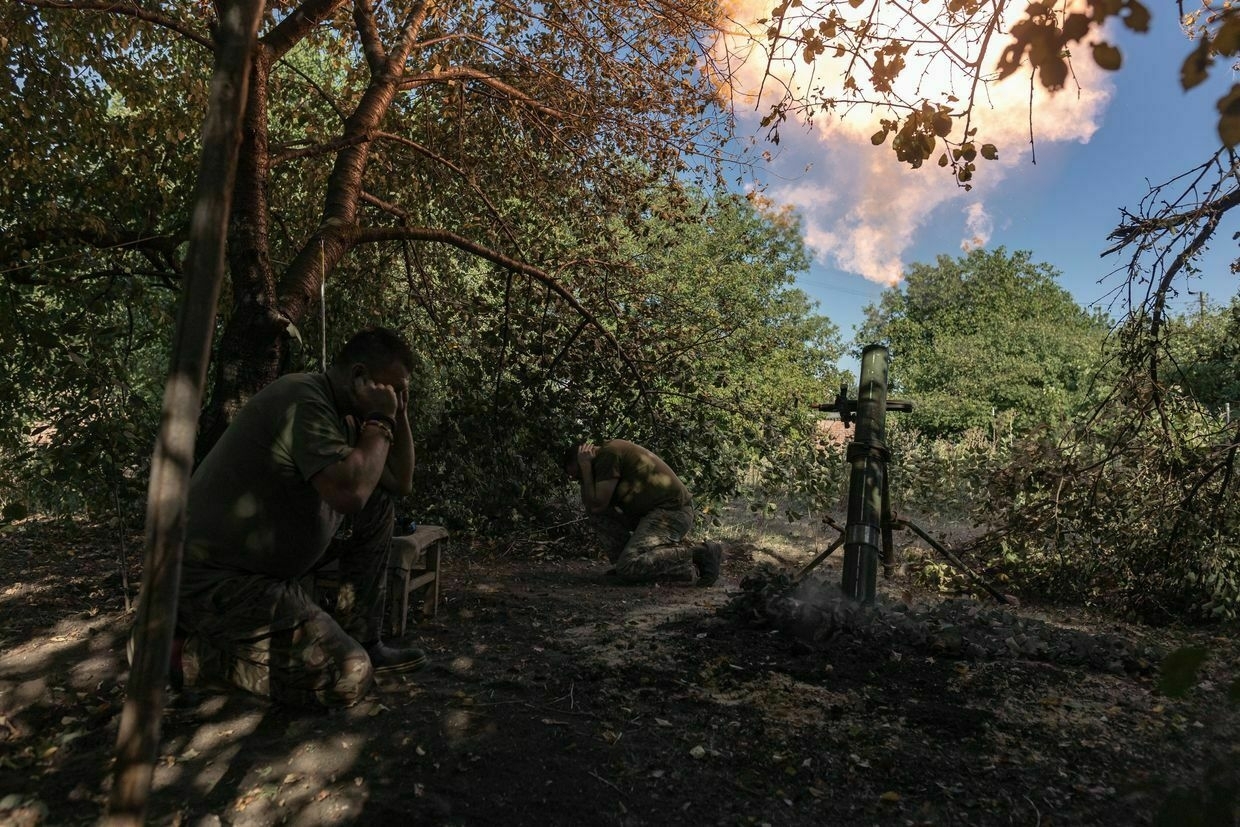
Russia has lost around 1,012,500 troops in Ukraine since the beginning of its full-scale invasion on Feb. 24, 2022, the General Staff of Ukraine’s Armed Forces reported on June 23.
The number includes 1,010 casualties Russian forces suffered just over the past day.
According to the report, Russia has also lost 10,965 tanks, 22,872 armored fighting vehicles, 52,861 vehicles and fuel tanks, 29,490 artillery systems, 1,423 multiple launch rocket systems, 1,188 air defense systems, 416 airplanes, 337 helicopters, 41,717 drones, 28 ships and boats, and one submarine.
Russia’s mass missile, drone attack on Kyiv kills 5, injures at least 19Russia launched a wave of missile and drone attacks on Kyiv and surrounding region overnight on June 23.The Kyiv IndependentLucy Pakhnyuk
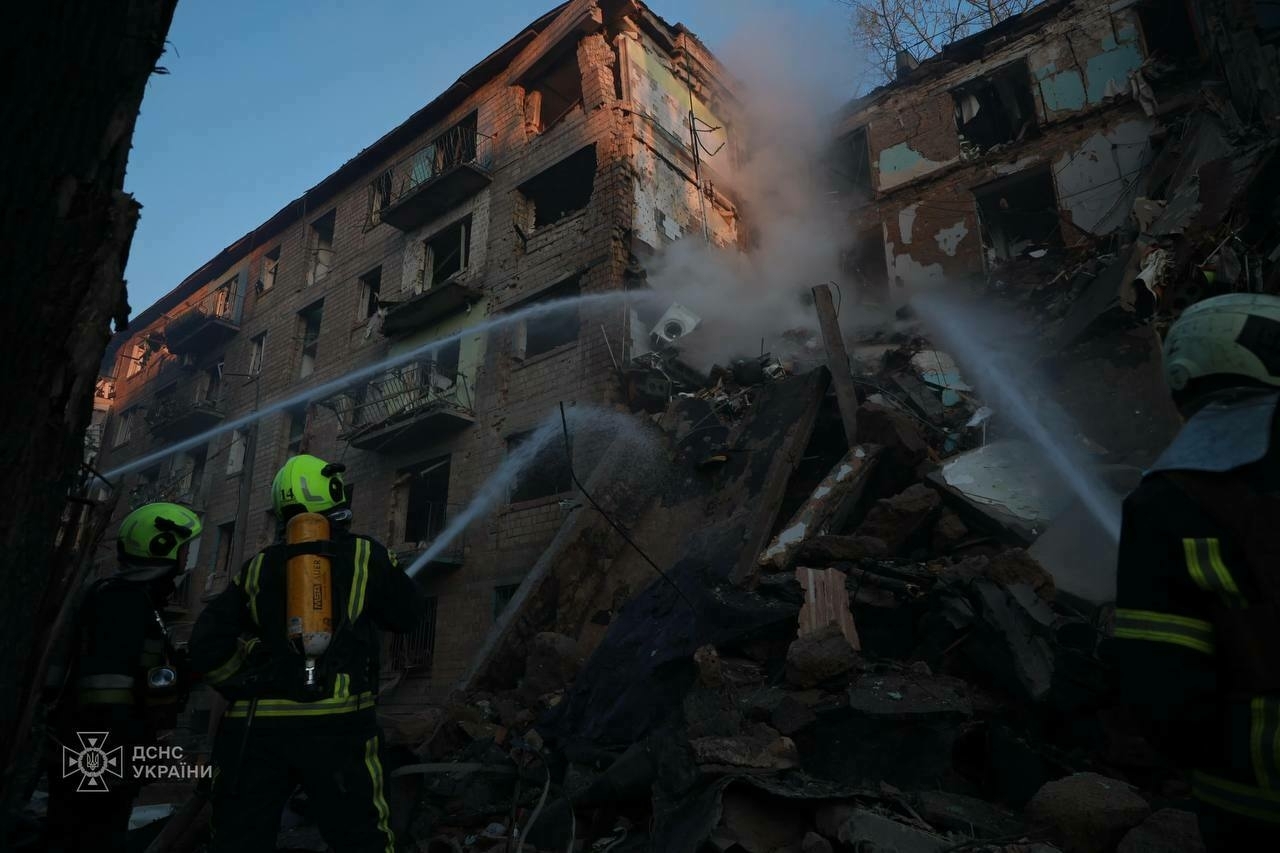
-
The army’s transition to a new management structure
On June 21, the Commander-in-Chief of the Armed Forces of Ukraine, Oleksandr Syrskyi, held a meeting with Ukrainian and foreign journalists to share his vision of the situation at the…
-
'Moscow is silent' — Zelensky slams Russia's hypocrisy over Iran strikes, own mass attack on Ukraine
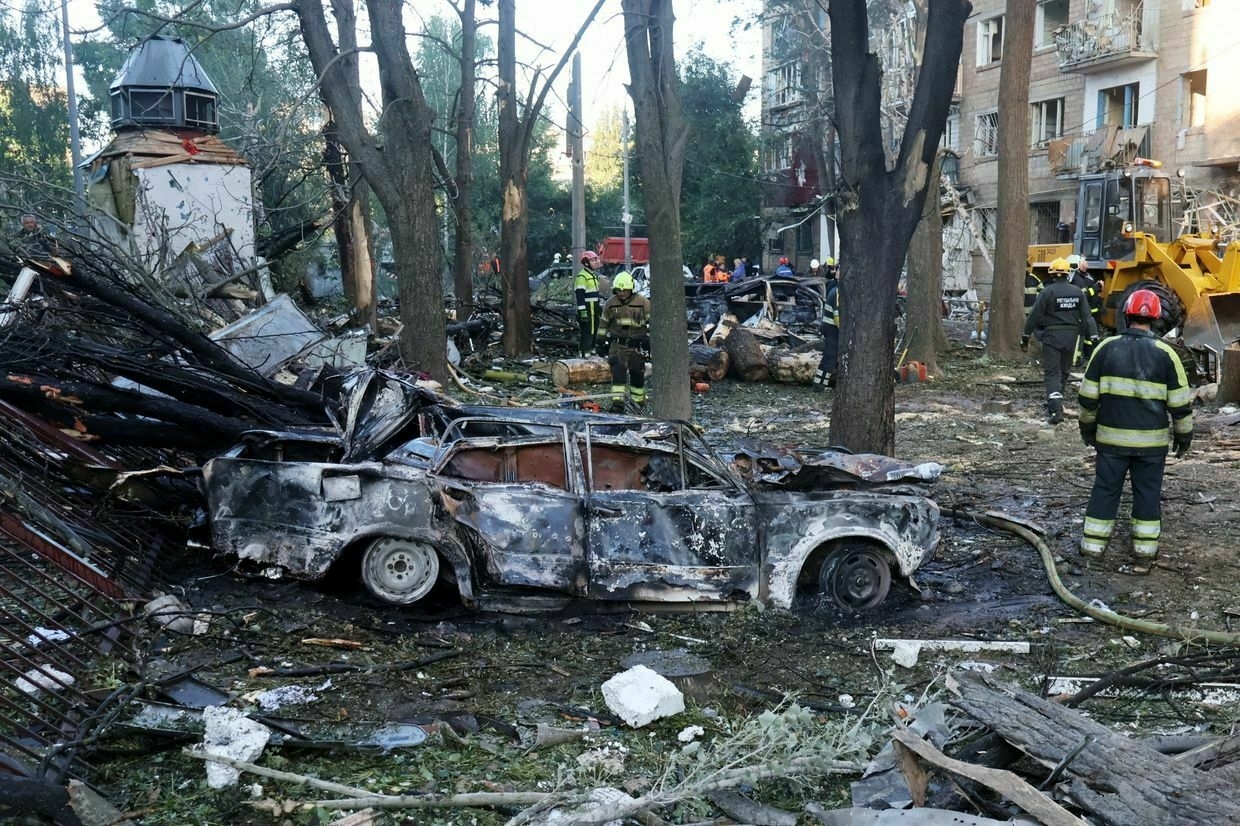
President Volodymyr Zelensky on June 23 highlighted Russia’s hypocrisy for describing U.S. strikes on Iran as “grossly violating international law” just hours before launching yet another deadly mass missile and drone strike on Ukraine.
“After the strikes on Iran’s nuclear facilities, there was an uproar from Moscow,” Zelensky said.
“The Russian leadership demonstratively condemned the ‘missile and bomb’ actions. Today, Moscow is silent — after its own army launched a cynical attack using Russian-Iranian ‘Shaheds’ and missiles on civilian infrastructure in Kyiv and other cities."
Moscow on June 22 condemned the recent U.S. strikes against Iranian nuclear facilities.
“The irresponsible decision to subject the territory of a sovereign state to missile and bomb strikes, no matter what arguments are used, is grossly violating international law, the U.N. Charter, and the resolutions of the U.N. Security Council,” the Russian Foreign Ministry said in a statement.
Overnight on June 23 a devastating Russian missile and drone strike on Kyiv killed at least 7 people and injured dozens more, including children.
The attack was one of the largest air assaults on the capital this year, with 368 aerial weapons launched, including 159 Iranian-made Shahed drones and 16 missiles, according to Ukraine’s Air Force.
After the strikes on Iran’s nuclear program facilities, there was a lot of uproar from Moscow — the Russian leadership performatively condemned the “missile-and-bomb” actions. Today, Moscow is silent after the Russian army carried out a completely cynical strike using… pic.twitter.com/xq6TUsfWM2
— Volodymyr Zelenskyy / Володимир Зеленський (@ZelenskyyUa) June 23, 2025Air defenses intercepted most, but not all. The attack hit six locations directly, causing destruction in 25 separate sites across Kyiv and the wider region.
Governor of Kyiv Oblast Tymur Tkachenko reported 6 people were killed, with 25 other injured in Kyiv alone, including four children.
In his remarks, Zelensky also warned of a growing alliance between Russia, Iran, and North Korea — a "coalition of killers," he said, and urged countries near these regimes to consider whether they can defend themselves if such a bloc continues to spread terror.
"Each country neighboring Russia, Iran, and North Korea should ask whether their own defenses are enough if this axis of evil preserves and remains unchecked," he said.
Zelensky, speaking ahead of meetings with British officials during his visit to the U.K., said he would push for stronger collective air defense and tougher sanctions on Russia.
Zelensky's comments came just a day after Ukraine's Foreign Ministry called for the dismantling of Iran's nuclear program following U.S. air strikes on Iranian nuclear sites.
"Iran is complicit in the crime of aggression against Ukraine," the ministry said in a June 22 statement. "The Iranian regime is providing military assistance to Russia, including the supply of UAVs and technologies that Russia consistently uses to kill people and destroy critical infrastructure."
The statement followed U.S. President Donald Trump's announcement of successful air strikes on three nuclear facilities in Iran, Fordow, Natanz, and Esfahan, conducted in coordination with Israel.
Moscow, which condemned the U.S. and Israeli strikes on Iran, has long cooperated with Tehran on nuclear and military matters. Russia supplied Iran with its first nuclear power plant and has relied on Iranian drones throughout its invasion of Ukraine.
Russia pulls its scientists out of Iranian nuclear plant, as Israeli strikes threaten decades of collaborationIsrael’s strikes on Iranian nuclear facilities have alarmed none more than Russia, the country that first brought nuclear power to Iran in defiance of Western objections. We’re “millimeters from catastrophe,” said Kremlin spokeswoman Maria Zakharova on June 18 in response to a bombing campaign that Israel launched againstThe Kyiv IndependentKollen Post
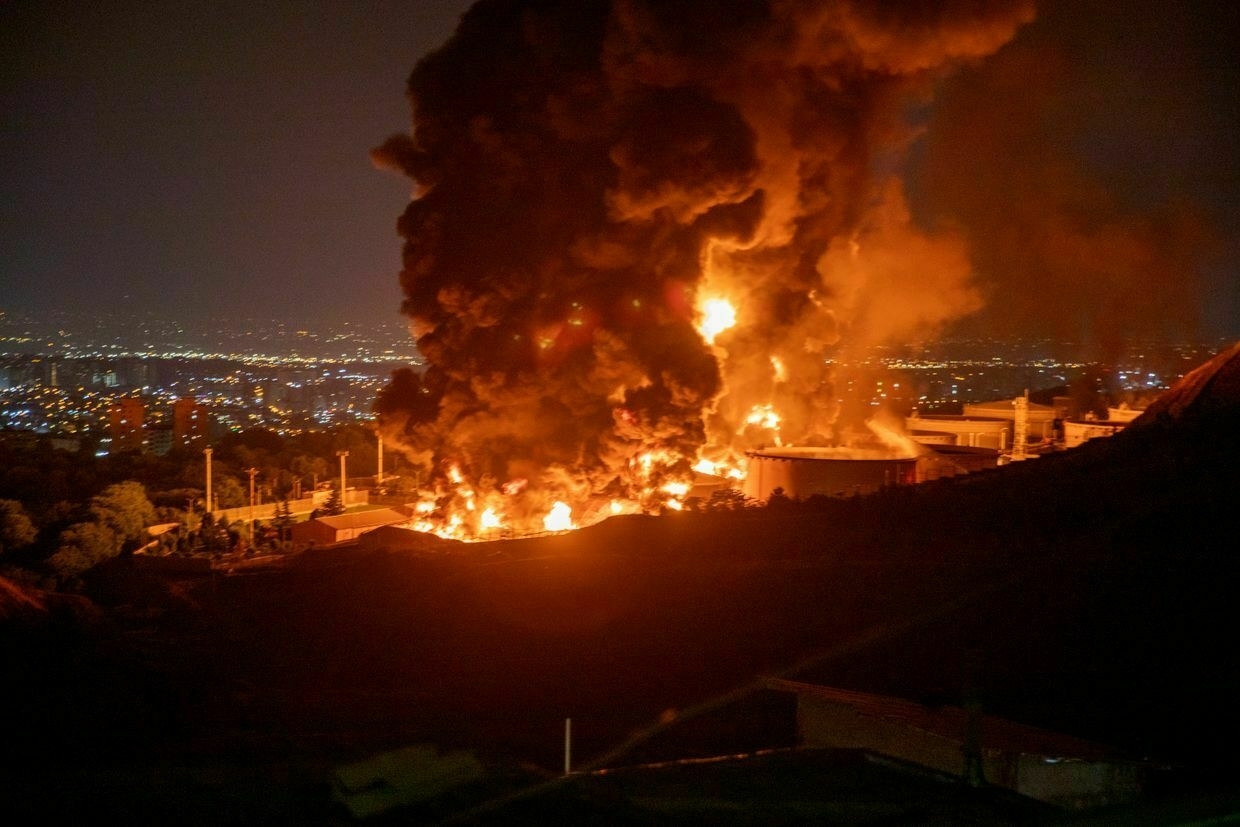
-
Russian drone and missile attacks kill at least 13, injure 57 across Ukraine over past day
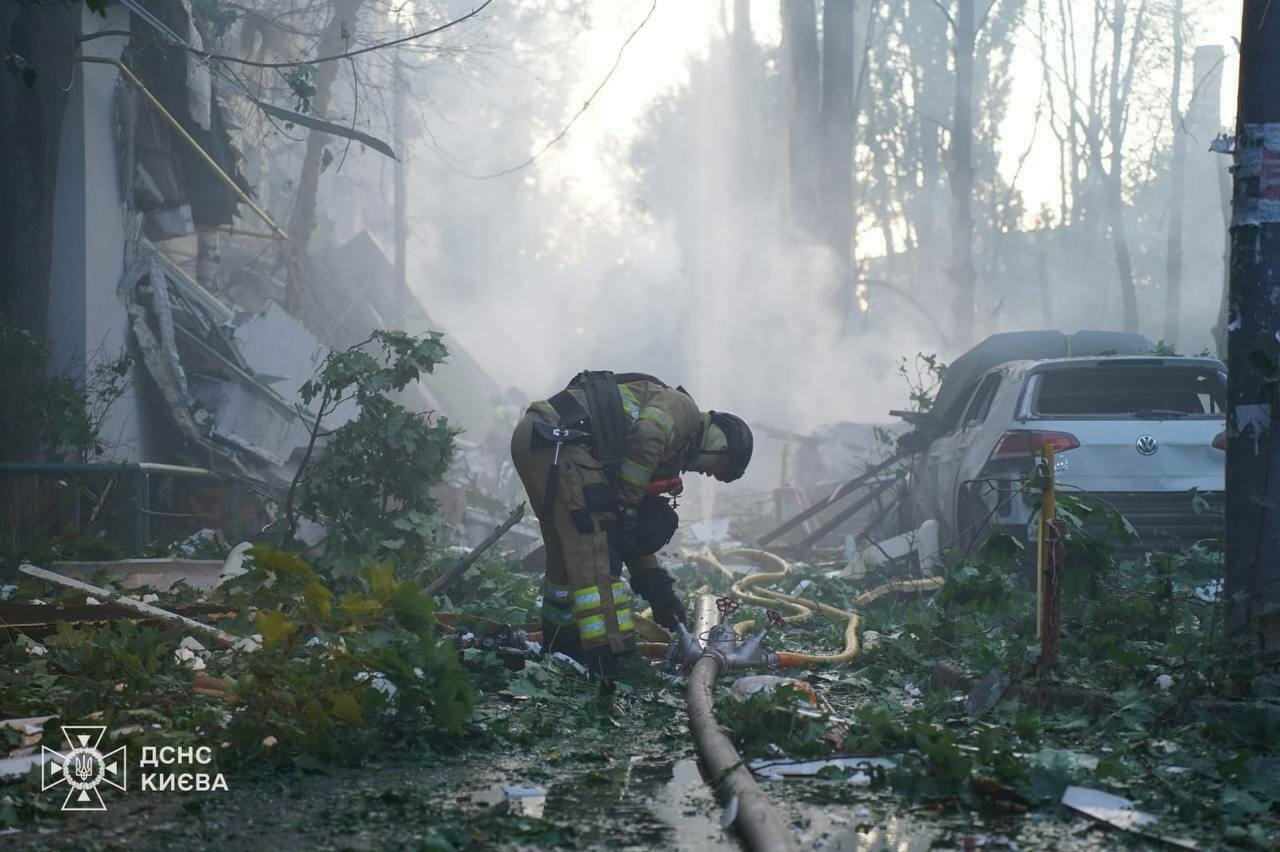
Russian attacks have killed at least 13 civilians and injured 57 across multiple oblasts over the past day, Ukrainian officials reported on June 23.
According to the Ukrainian Air Force, Russia deployed 368 aerial weapons, including 352 attack drones, 11 Iskander-M/KN-23 ballistic missiles, and 5 Iskander-K cruise missiles, striking primarily Kyiv. Ukraine’s air defenses destroyed 354 of them.
In Kyiv Oblast, Governor Mykola Kalashnyk said a person was killed in Bilotserkivka district, two were hospitalized, and two others received on-site medical aid. Attacks damaged houses in three districts: Boryspil, Bila Tserkva, where a medical facility in a hotel was destroyed, and Bucha, damaging several houses and vehicles.
In Kyiv city, Mayor Vitali Klitschko and Kalashnyk reported 6 killed and 25 injured, including a pregnant woman and a child rescued from a damaged 25-story building in the Shevchenkivskyi district.
In Kherson Oblast, Governor Oleksandr Prokudin said Russian drone, artillery, and air attacks hit numerous settlements, including Kherson city. Infrastructure damage included seven apartment buildings, 14 houses, a gas pipeline, a garage, and vehicles. One person was killed, and six were wounded. Early June 22, three more people were injured across the oblast.
In Donetsk Oblast, Governor Vadym Filashkin reported that a Russian attack killed two residents in Siversk and Myrne, with five more wounded. The numbers exclude casualties in occupied Mariupol and Volnovakha.
In Chernihiv Oblast, Russian missile and drone strikes killed at least three people and injured 11 others, including four teenagers, Governor Viacheslav Chaus said. The attacks damaged houses, businesses, and infrastructure across multiple districts, including Chernihiv, Nizhyn, Pryluky, Korukivka, and Novhorod-Siverskyi.
Russia preparing military operations in Europe, Zelensky says“We are observing a continued intellectual decline within the Russian leadership and have evidence that they are preparing new military operations on European territory,” President Volodymyr Zelensky said.The Kyiv IndependentNatalia Yermak
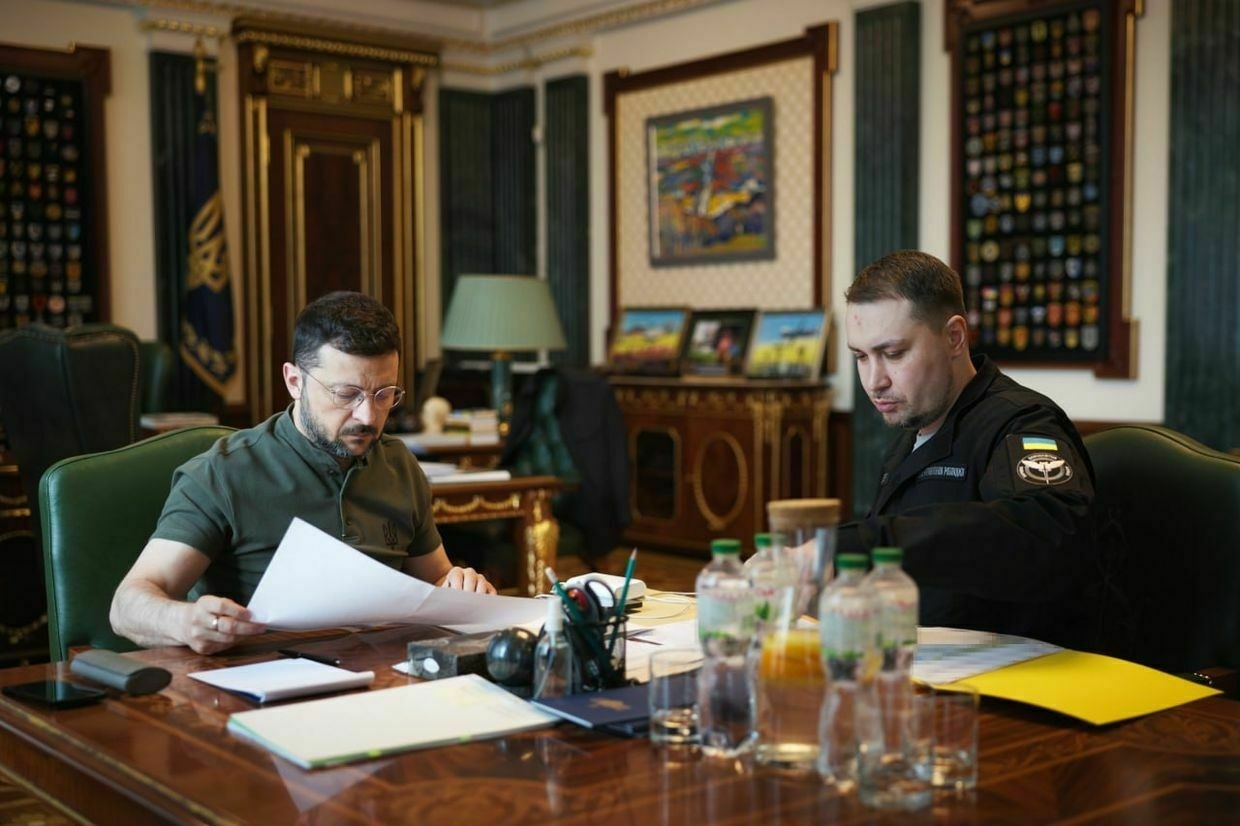
-
Deputy PM Chernyshov returns to Ukraine as questions mount amid corruption probe
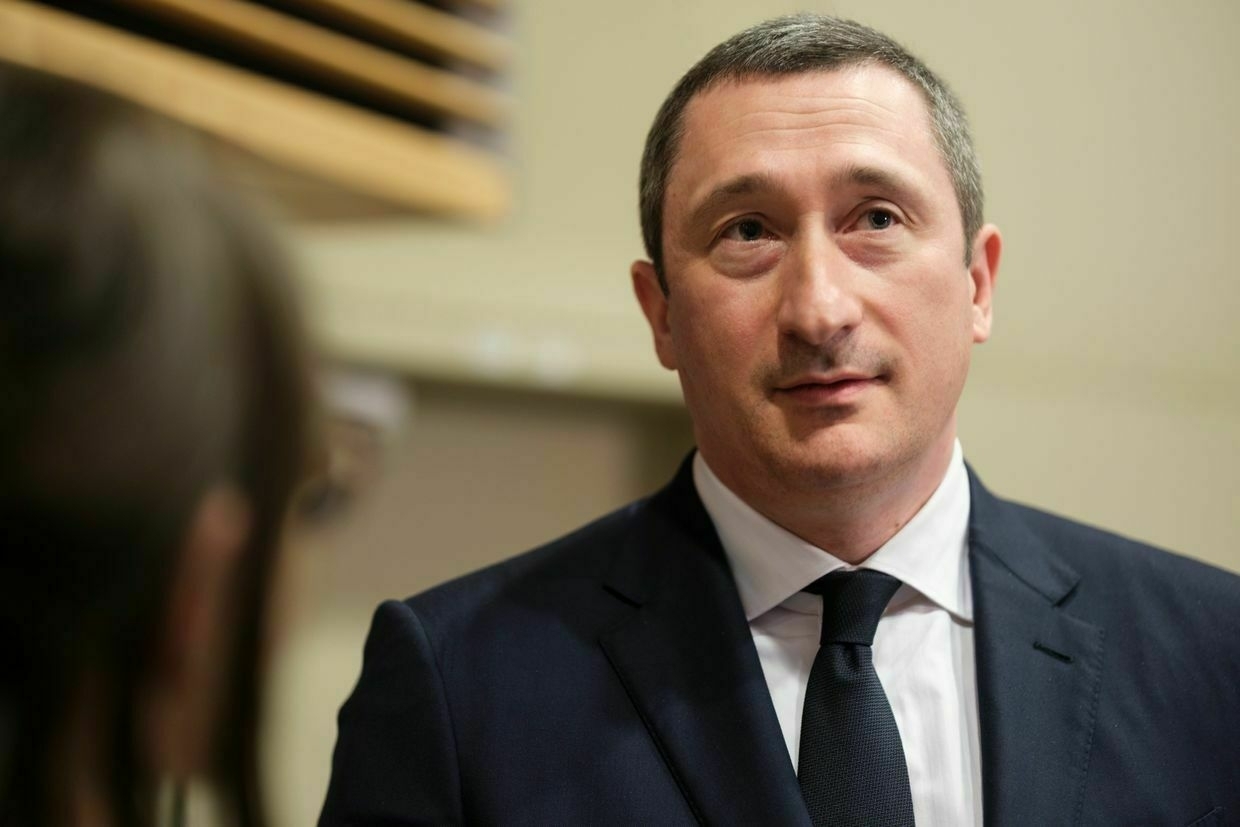
Deputy Prime Minister Oleksii Chernyshov returned to Ukraine on June 22 following his official trip abroad amid media speculations connecting Chernyshov’s absence to an ongoing corruption investigation.
Chernyshov, who announced his return in a Facebook post, has been the subject of controversy in recent days after law enforcement agencies unveiled a corruption scheme involving two officials from the now-dissolved Communities and Territories Development Ministry, which was headed by Chernyshov.
Suspicions about Chernyshov, who heads the new National Unity Ministry focused on relations with refugees and the Ukrainian diaspora, arose when the deputy prime minister did not attend a Kyiv forum he himself organized in person but joined online from abroad.
Chernyshov unexpected work trip to Vienna, announced on June 16, came just three days after law enforcement officials revealed the scheme, leaving Prime Minister Denys Shmyhal to answer questions in parliament about Chernyshov’s trip. The National Unity Ministry said that foreign trips are a regular part of Chernyshov’s work.
Ukrainska Pravda reported, citing its sources, that Chernyshov’s son and wife had also Ukraine following Chernyshov’s most recent trip. It was not immediately clear whether they had returned to the country.
“Finally home. A difficult but very important business trip (which, thanks to some media outlets, became unexpectedly popular) is now over,” Chernyshov said in a Facebook post.
Chernyshov added that he will be returning to work within the Cabinet of Ministers starting on June 23.
“We’ll also break down the smear campaign fact by fact. The truth always prevails,” he added, referring to the ongoing police matter.
According to Ukrainska Pravda, Chernyshov and two of his associates came under investigation last year over suspicions that they received kickbacks from Serhii Kopystira, the head of the KSM Group, for illicitly transferring a plot of land for real estate development between 2021 and 2022.
Four sources in anti-corruption agencies told Ukrainska Pravda that despite the investigation, no police searches were conducted at the time, as they were blocked by the head of the National Anti-Corruption Bureau, Semen Kryvonos, who has a long-standing relationship with Chernyshov.
After the dissolution of the Communities and Territories Development Ministry at the end of 2022, Chernyshov was appointed the head of the state-owned energy company Naftogaz. In 2024, the official was tasked with leading the new National Unity Ministry — a position that often involved travel abroad — while also being named deputy prime minister.
The other two people connected to the case — Maksym Horbatiuk and Vasyl Volodin — were reportedly detained last week as the investigation began moving forward.
President Volodymyr Zelensky previously commented on Chernyshov’s presence abroad amid questions from media.
“What Shmyhal told me is that he’s on a business trip. He had two tasks from me, from the government, from all of us: the first — to open hubs in different countries, and the second — multiple citizenship. As far as I understand, he is working on both of these,” Zelensky was quoted as saying.
The Kyiv Independent could not verify all the claims presented through the media investigation.
Ukraine war latest: ‘Ukrainian drones for the foot of every Russian soldier’ — Zelensky responds to Putin’s threat to conquer all of UkraineKey developments on June 21-22: * ‘Ukrainian drones for the foot of every Russian soldier’ — Zelensky responds to Putin’s threat to conquer all of Ukraine. * 3 killed, 14 wounded as Russia strikes Ukrainian military training facility. * Russia seeks to advance along almost entire eastern front, Ukraine holding ground in Kursk Oblast,The Kyiv IndependentSonya Bandouil
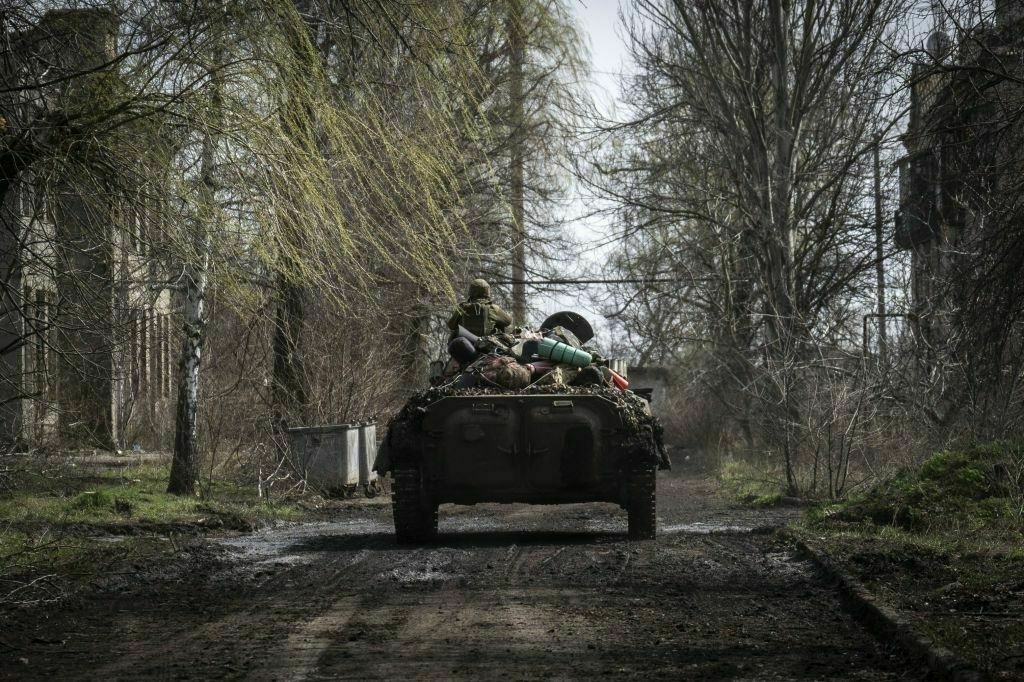
-
Zelensky expected to speak at Council of Europe parliamentary session next week
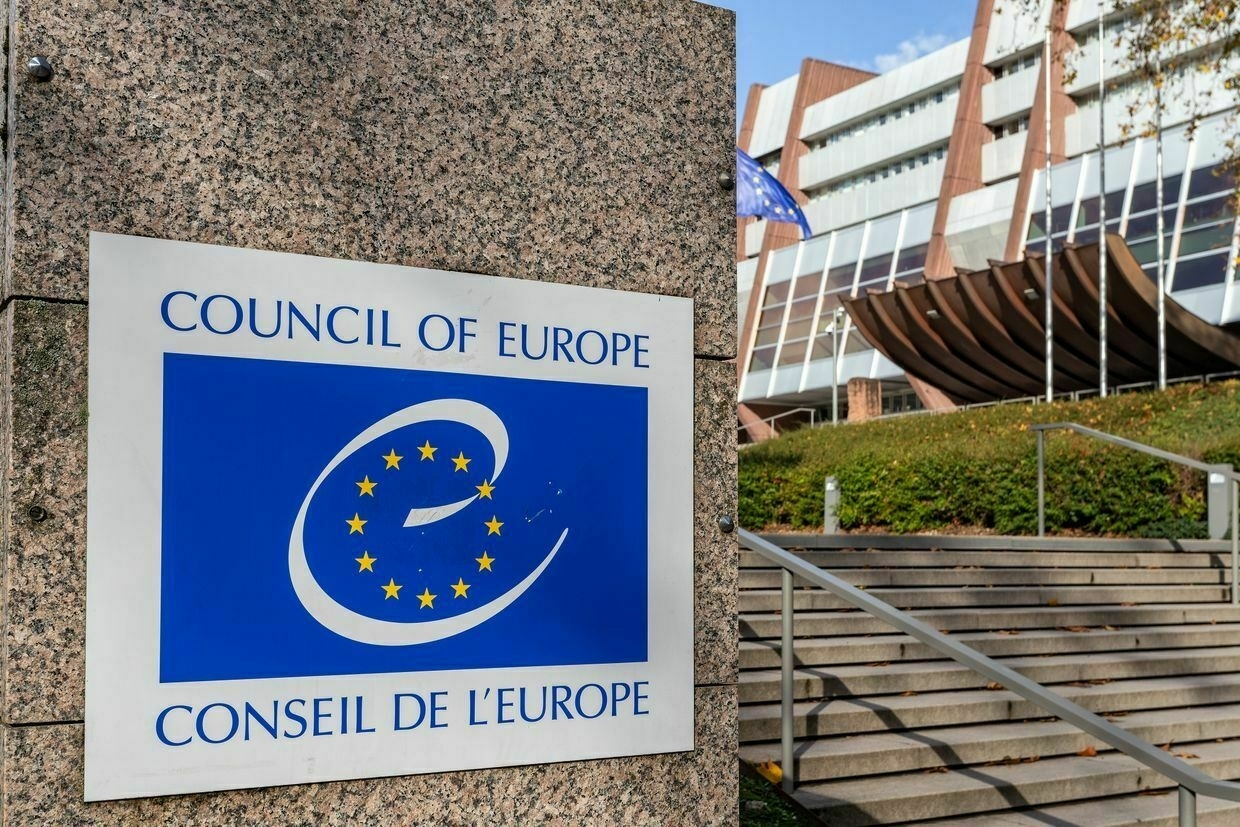
President Volodymyr Zelensky is expected to attend the summer plenary session of the Parliamentary Assembly of the Council of Europe (PACE), scheduled for June 23-27 in Strasbourg, France.
According to the draft agenda, Zelensky is slated to address the assembly on June 26, though his attendance has not yet been confirmed.
While the content of Zelenky’s speech has not been disclosed, the PACE summer session is expected to focus on women’s rights in Europe as well as the war in Gaza.
Legal and human rights issues related to Russia’s ongoing war against Ukraine, and a corresponding resolution, are also listed on the agenda.
The spring session, which took place in April 2025, focused predominantly on Georgia, Turkey, and Ukraine.Ahead of the PACE session, Zelensky is also set to attend next week’s NATO summit in The Hague on June 24. He is expected to meet with European Commission President Ursula von der Leyen and NATO Secretary-General Mark Rutte.
PACE is the parliamentary arm of the Council of Europe, an international organization of 46 countries, including Ukraine, that promotes democratic values and human rights. Russia was expelled from the body in early 2022 in response to its invasion of Ukraine.
Since the start of the full-scale invasion in 2022, the assembly has issued a number of resolutions regarding Russia, calling for the establishment of an international special tribunal to hold Russia accountable for war crimes and recognizing Putin as an illegitimate dictator.
Most recently, PACE adopted a resolution addressing the ongoing Russian war of aggression against Ukraine, stressing the urgent need to ensure accountability and avoid impunity for the serious breaches of international law committed.
Pro-Russian ‘peace protestors’ set to descend on NATO summitDutch protesters who regularly call for an end to military aid to Ukraine will descend on The Hague next week to protest the upcoming NATO summit, which is set to take place on June 24-25. The group will protest against NATO alongside several other organizations and has urged supporters onThe Kyiv IndependentLinda Hourani
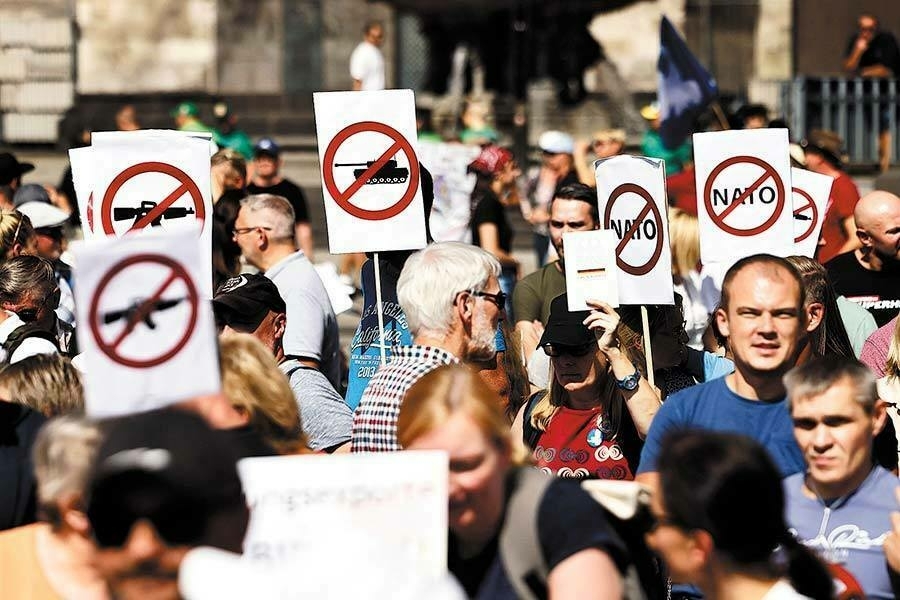
-
Russia launches drone attacks on Kyiv, injuring 2
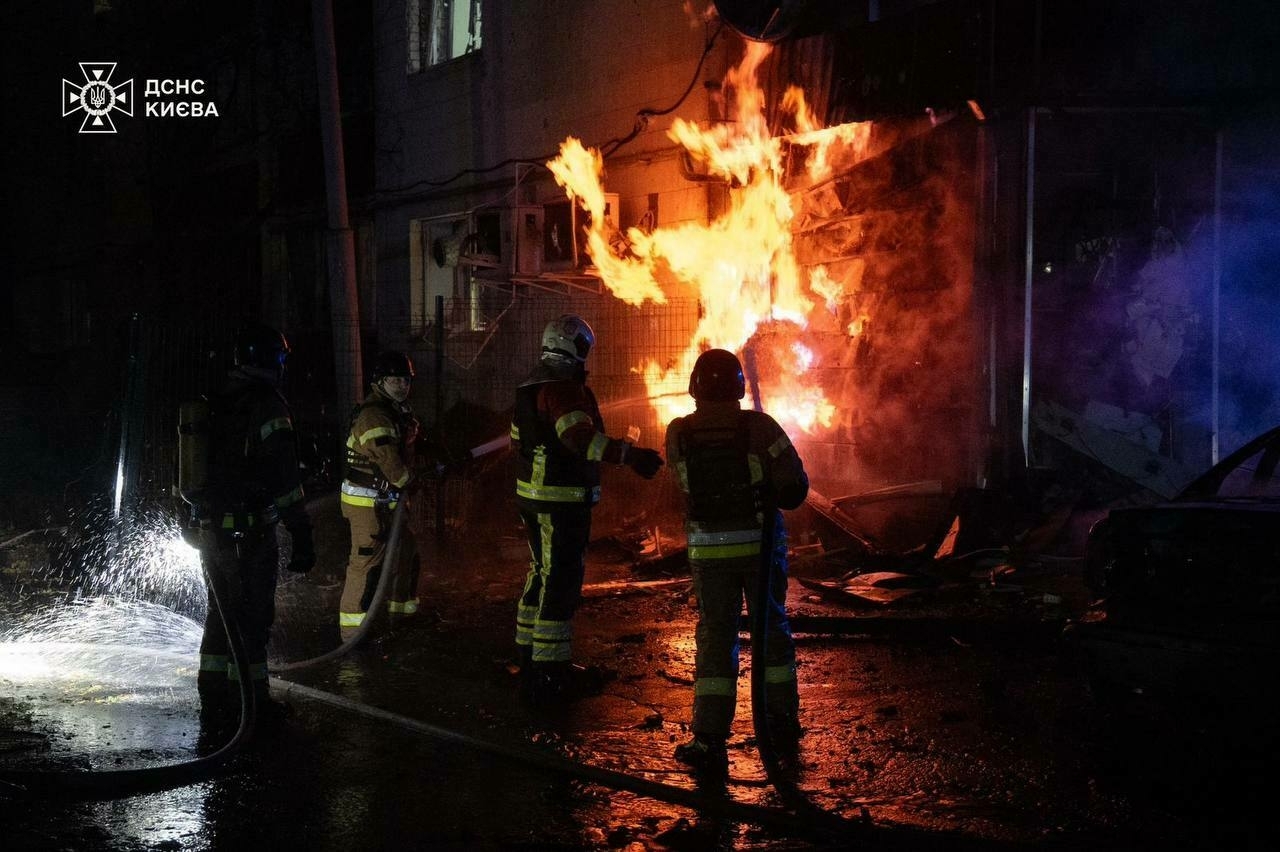
Editor’s note: This is a developing story and is being updated as new details emerge.
Russia launched a wave of drone attacks on Kyiv overnight on June 23, local officials reported.
As of 1:40 a.m. local time, two people had been reported injured, Kyiv Mayor Vitali Klitschko said on Telegram. The two injured people have been hospitalized.
By 2:59 a.m. local time, reports indicated that the Darnytskyi, Solomianskyi, and Svyatoshynskyi districts had been affected.
In Darnytskyi, debris from a drone strike fell on a two-story residential building, but no fires or casualties were reported.
Fires broke out in the Solomianskyi district, where debris also struck a residential building.
In the Sviatoshynskyi district, a high-rise apartment building was damaged, though there were no fires or casualties. Drone strike debris also landed in an open area of a stadium in Sviatoshynskyi, again without injuries or fire.
Air defense systems remained active across the city.
Russian attacks kill 7, injure 23 in Ukraine over past dayRussia launched two Iskander-M or North Korean KN-23 ballistic missiles, an S-300 anti-aircraft missile, and 47 Shahed-type attack drones and decoy drones against Ukraine overnight, primarily targeting Chernihiv Oblast, Ukraine’s Air Force reported.The Kyiv IndependentMartin Fornusek
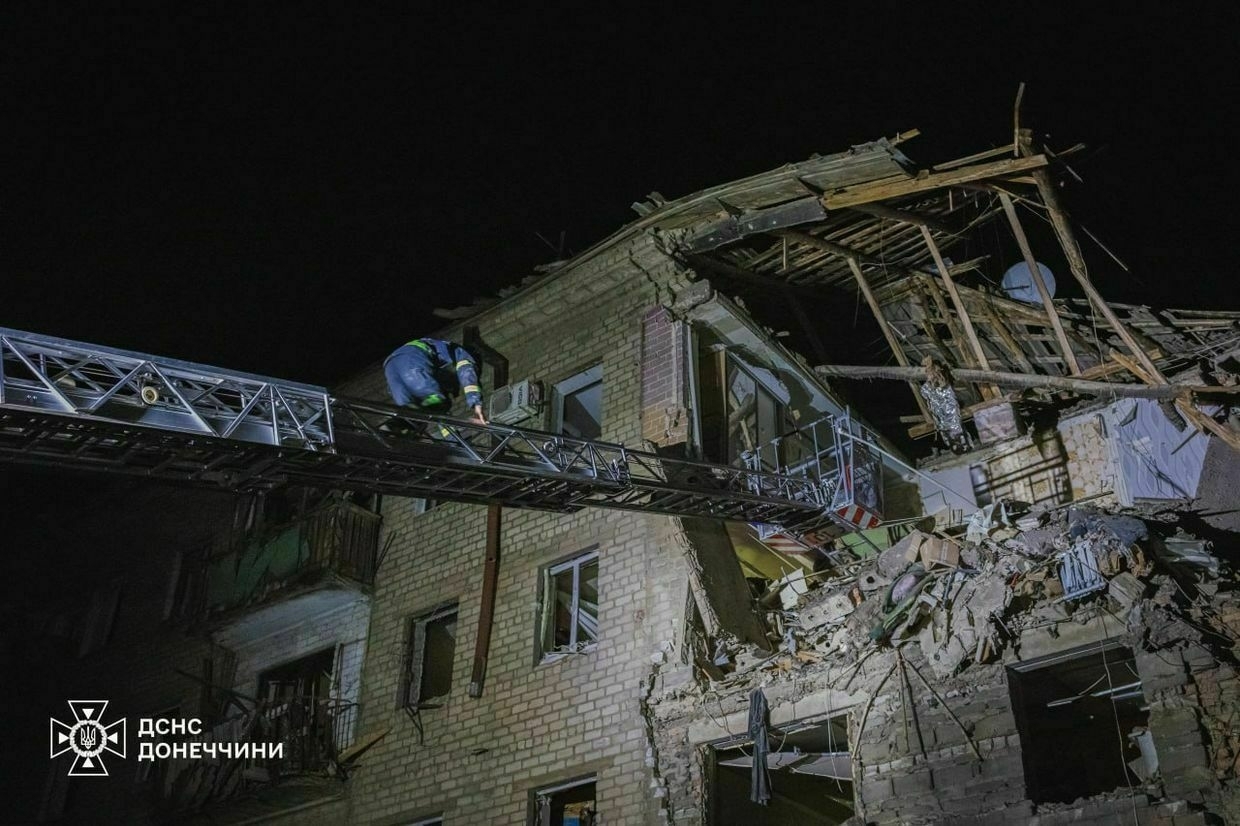
-
Norway to invest $400 million in Ukraine's drone, air defense missile production
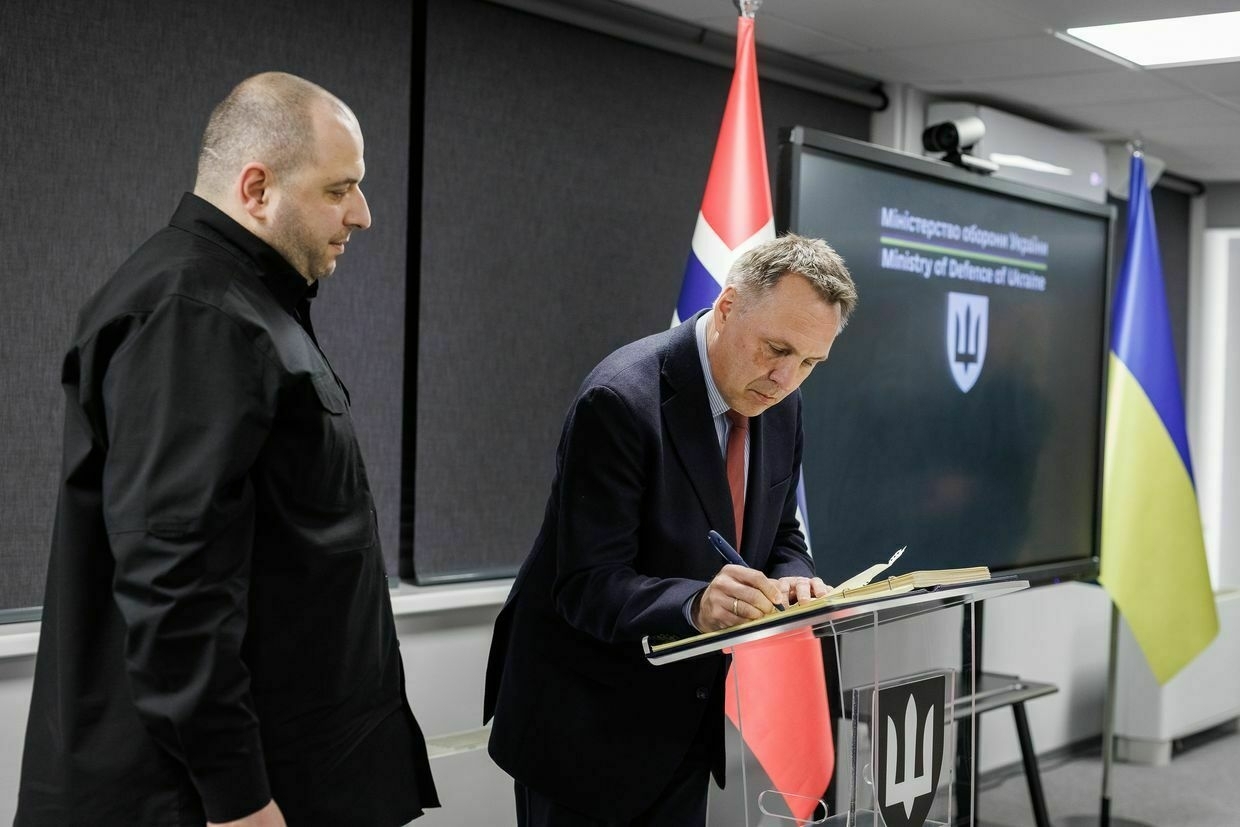
Norway will invest $400 million in Ukraine’s defense industry to support drone and air defense missile production, President Volodymyr Zelensky said in his nightly address on June 22.
The announcement followed a visit to Ukraine by Norwegian Defense Minister Tore Onshuus Sandvik.
“Today, Norway’s Minister of Defense visited Ukraine. A decision has been reached to invest $400 million in our production – new funding, primarily for drones,” Zelensky said.
Zelensky added that the two countries are also working together to establish joint air defense production inside Ukraine.
“We are working together to create all the necessary conditions to produce air defense systems in Ukraine — jointly with partners, jointly with Norway,” Zelensky said.
He added that Norway’s largest defense company – Kongsberg Defence & Aerospace – has already opened an office in Ukraine as part of the cooperation.
“We are expediting all processes to the maximum extent,” Zelensky said.
On X, Norway’s defense ministry confirmed that Kongsberg has signed agreement with a major Ukrainian company to jointly develop and produce missiles for air defense systems in Ukraine.
The collaboration will focus on producing missiles for the National Advanced Surface-to-Air Missile System, or NASAMS.
“The Norwegian NASAMS system saves lives in Ukraine every day, and is crucial in protecting critical infrastructure. That is why it is important for the Norwegian Government to finance this development of cheaper missiles for the NASAMS system in Ukraine,” said Minister Sandvik.
The announcement marks deepening ties between Kyiv and Oslo as Ukraine seeks to expand its domestic defense industry amid Russia’s ongoing full-scale invasion and reduced military aid from the United States.
Ukraine war latest: ‘Ukrainian drones for the foot of every Russian soldier’ — Zelensky responds to Putin’s threat to conquer all of UkraineKey developments on June 21-22: * ‘Ukrainian drones for the foot of every Russian soldier’ — Zelensky responds to Putin’s threat to conquer all of Ukraine. * 3 killed, 14 wounded as Russia strikes Ukrainian military training facility. * Russia seeks to advance along almost entire eastern front, Ukraine holding ground in Kursk Oblast,The Kyiv IndependentSonya Bandouil
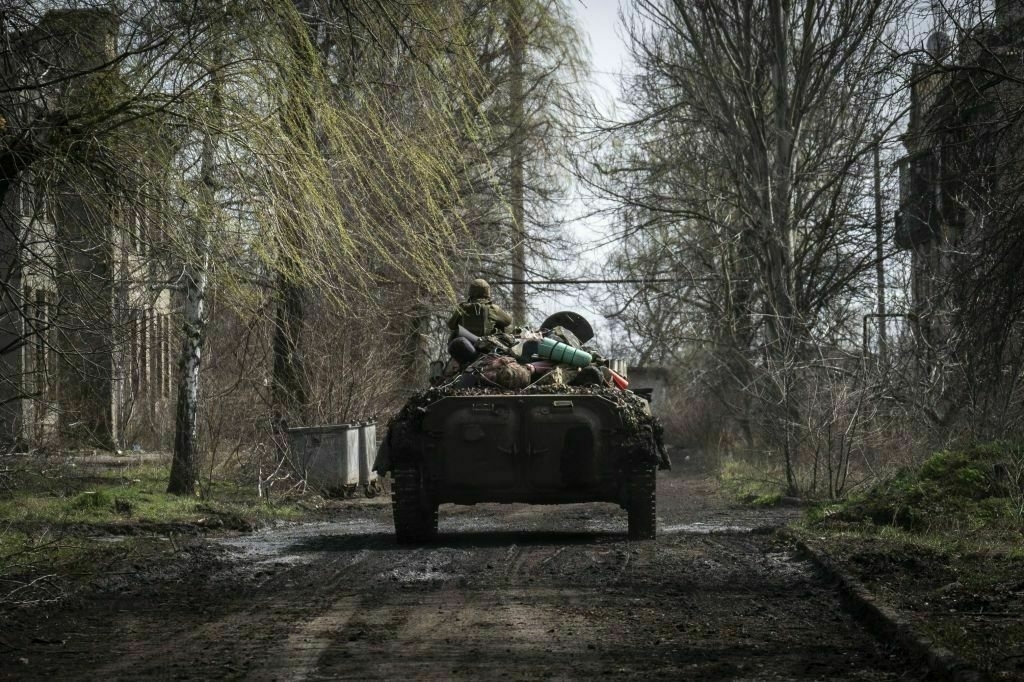
-
My duty to Ukraine! An American volunteer on why he helps in Dobrobat #shorts
-
Ukraine war latest: 'Ukrainian drones for the foot of every Russian soldier' — Zelensky responds to Putin's threat to conquer all of Ukraine
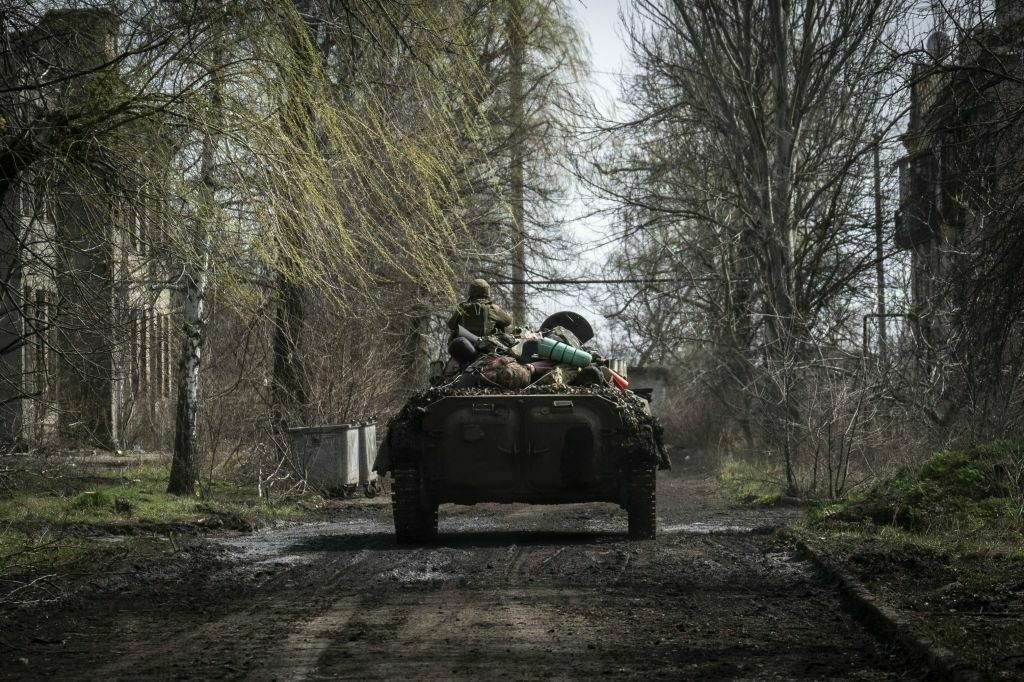
Key developments on June 21-22:
- ‘Ukrainian drones for the foot of every Russian soldier’ — Zelensky responds to Putin’s threat to conquer all of Ukraine.
- 3 killed, 14 wounded as Russia strikes Ukrainian military training facility.
- Russia seeks to advance along almost entire eastern front, Ukraine holding ground in Kursk Oblast, Syrskyi says.
- Ukraine approves Termit ground drone for battlefield deployment.
- Ukraine’s deep strikes cost Russia over $10 billion this year, Syrskyi says.
- Ukraine destroys 80% of Russian drones despite air defense missile shortage, Syrskyi says.
President Volodymyr Zelensky on June 21 responded to Russian President Vladimir Putin’s recent statements on Ukraine, saying that Ukraine intends to defend itself and that the government had made several decisions to bolster security in light of the Kremlin’s threats.
Putin said “all of Ukraine” belongs to Russia in a speech on June 20 at the St. Petersburg International Economic Forum, pointing to Moscow’s maximalist territorial ambitions in Ukraine.
“Wherever the foot of a Russian soldier steps is Russian land,” he said.
In his evening address on June 21, Zelensky described Putin’s speech as a “performance” but said Ukraine was taking the threats seriously.
“But when a murderer says he wants to kill, we take it seriously and will respond together with our partners,” Zelensky said.
“I hope with all our partners,” he added, likely referring to the United States' diminishing support for Ukraine under U.S. President Donald Trump.
Zelensky said he held meetings with Vasyl Maliuk, head of the Security Service of Ukraine (SBU), Commander-in-chief Oleksandr Syrskyi, and Foreign Minister Andrii Sybiha about how to bolster Ukraine’s defense and international support.
“Of course, we will find Ukrainian drones for the foot of every Russian soldier,” he said. “Of course, Ukraine will defend itself."
The Ukrainian government has made several decisions in light of Russia’s overt threats, Zelensky said. These include a complete diplomatic overhaul and transformation of Ukraine’s Foreign Ministry, intensified efforts to coordinate international sanctions, and more funding for drone development.
Kyiv’s instructions for the SBU remain confidential, Zelensky said.
Russia recruits Central Asia migrants as ‘cannon fodder’ in Ukraine war, HUR saysCitizens of Uzbekistan, Tajikistan, and other countries in the region are increasingly being drawn into Russia’s war effort, Ukraine’s military intelligence (HUR) says.The Kyiv IndependentTim Zadorozhnyy
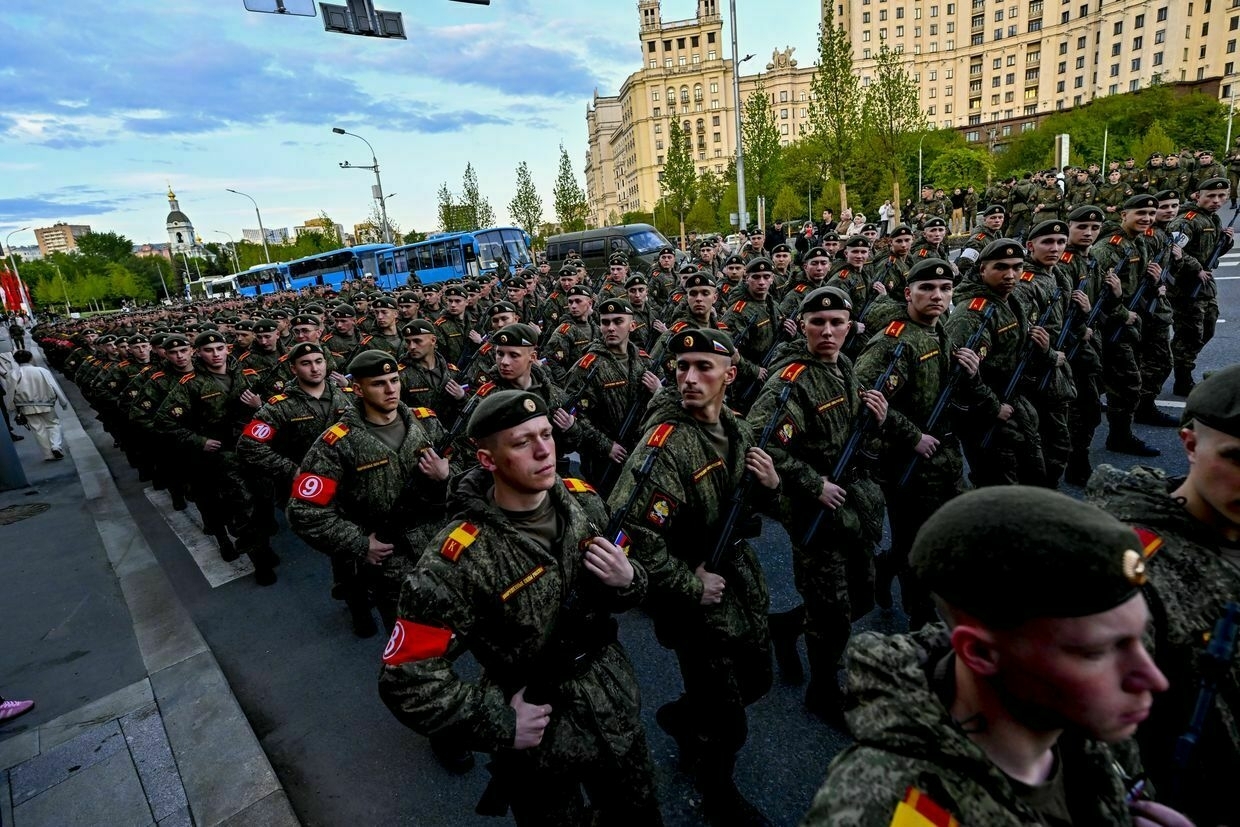
3 killed, 14 wounded as Russia strikes Ukrainian military training facilityRussia launched a missile attack on June 22 on the training ground of a Ukrainian mechanized brigade, where military personnel were being trained, the Ground Forces reported.
“Unfortunately, there are dead and wounded,” the statement read. The Ground Forces said that greater personnel losses were avoided thanks to the timely security measures taken when the air raid alert was issued.
Around 5:30 p.m., the Ground Forces initially said that three people were killed in the attack and 11 were wounded.
The number of injured was later updated, at around 7:30 p.m., to 14 people.
A special commission has been set up at the Ground Forces Command to investigate the incident, according to the statement. Law enforcement agencies are also working at the scene.
It is the second officially confirmed Russian attack in June that led to military casualties in the training facilities, adding to a chain of such attacks in the past few months.
Former Ground Forces Commander Mykhailo Drapatyi had promised to ensure new safety standards on the training grounds and hold accountable those responsible for the deaths after a Russian strike on March 1 on the training ground in Dnipropetrovsk during exercises.
Yet on May 20, another Russian missile strike against a shooting range in Sumy Oblast killed six service members and injured over 10, according to Ukraine’s National Guard.
After another Russian attack on June 1 on a Ukrainian military training ground killed 12 and injured 60, Drapatyi submitted his resignation as the Ground Forces Commander. He was appointed Commander of the Joint Forces on June 3.
Ukraine’s swift release of the statement and casualty number in the latest Russian attack stands out, as both Ukraine and Russia rarely acknowledge successful enemy attacks against their military facilities.
Former Ukrainian POW dies month after being released from Russian captivitySerhii Dobrovolskyi, a Ukrainian soldier who had been in Russian captivity since 2023, has died just a month after his release at the end of May as part of a 1000-for-1000 prisoner swap, an official from the soldier’s home region announced on June 21.The Kyiv IndependentNatalia Yermak

Russia seeks to advance along almost entire eastern front, Ukraine holding ground in Kursk Oblast, Syrskyi saysRussian forces are attempting to advance along almost the entire front in eastern Ukraine while trying to establish a buffer zone in northeastern Sumy Oblast, Commander-in-Chief Oleksandr Syrskyi told journalists on June 21.
The comments come as Moscow launched a new summer offensive against Ukraine, disregarding calls by Kyiv and its Western partners for an unconditional ceasefire.
The offensive’s goal is to reach the administrative borders of Donetsk and Luhansk oblasts in the east, and create a buffer zone in the border areas of the Sumy and Kharkiv oblasts, Syrskyi said at a meeting attended by the Kyiv Independent.
As of mid-June, Ukrainian defenders are fighting close to 695,000 Russian troops in Ukraine across a 1,200-kilometer (750-mile) front, the commander said, adding that Moscow recruited about 440,000 contract soldiers this year.
According to the open-source intelligence group DeepState, Russian forces occupied approximately 449 square kilometers (173 square miles) in May, the highest monthly figure this year.
Ukraine has managed to stop the Russian advance in Sumy Oblast at the moment, Syrskyi noted. “The situation there has been stabilized… we have recaptured Andriivka, and advanced between 200 and 700 meters in Yunakivka in a week,” he said.
Russian forces are also attempting to fully oust Ukrainian troops from Russia’s home territory in the Kursk and Belgorod oblasts.
“We control about 90 square kilometers (35 square miles) in the Glushkovsky district of Russia’s Kursk Oblast,” Syrskyi said.
Ukraine launched the cross-border offensive into Kursk Oblast — bordering Ukraine’s Sumy Oblast — last August, initially seizing 1,300 square kilometers (500 square miles) but losing the vast majority of this territory in a Russian counteroffensive earlier this year.
Moscow initially declared to have fully liberated the region on April 26, but this claim was rejected by Ukraine and later disputed by Russian officials themselves.
Kyiv has said the incursion was meant to preempt a Russian offensive into Sumy Oblast and force Russia to redirect troops fighting in Donetsk Oblast.
Syrskyi stressed that at one point, the Kursk operation drew in almost 63,000 Russian soldiers, which, in addition to North Korean soldiers, amounted to about 70,000 troops deployed in the region.
“In April 2025, Russian units – and this, I remind you once again, is about 60 thousand people… were tasked with moving to new sectors and reinforcing Russian assault groups in the Pokrovsk, Toretsk, Lyman, Zaporizhzhia, and Kherson directions,” Syrskyi said.
“But our actions in the Glushkovsky district of Russia’s Kursk Oblast thwarted these plans.” At the moment, about 10,000 Russian soldiers are fighting in the Glushkovsky district, the commander added.
Syrskyi also said Russian assault units approached the administrative border of Dnipropetrovsk Oblast but were thrown back.
“As for our plans and intentions. Of course, we will not simply remain in a blind defense… Therefore, we combine defensive actions with active defense and active offensive operations,” Syrskyi said.
For this purpose, the Ukrainian military is scaling up its assault units, which were created at the beginning of the Kursk operation and are currently deployed in all areas of the front, he added.
Ukraine planning diplomatic overhaul to win stronger global support against Russia“The president has already made certain personnel decisions regarding the heads of some foreign institutions, because the criterion is very simple: results,” Foreign Minister Andrii Sybiha said on June 21.The Kyiv IndependentAbbey Fenbert
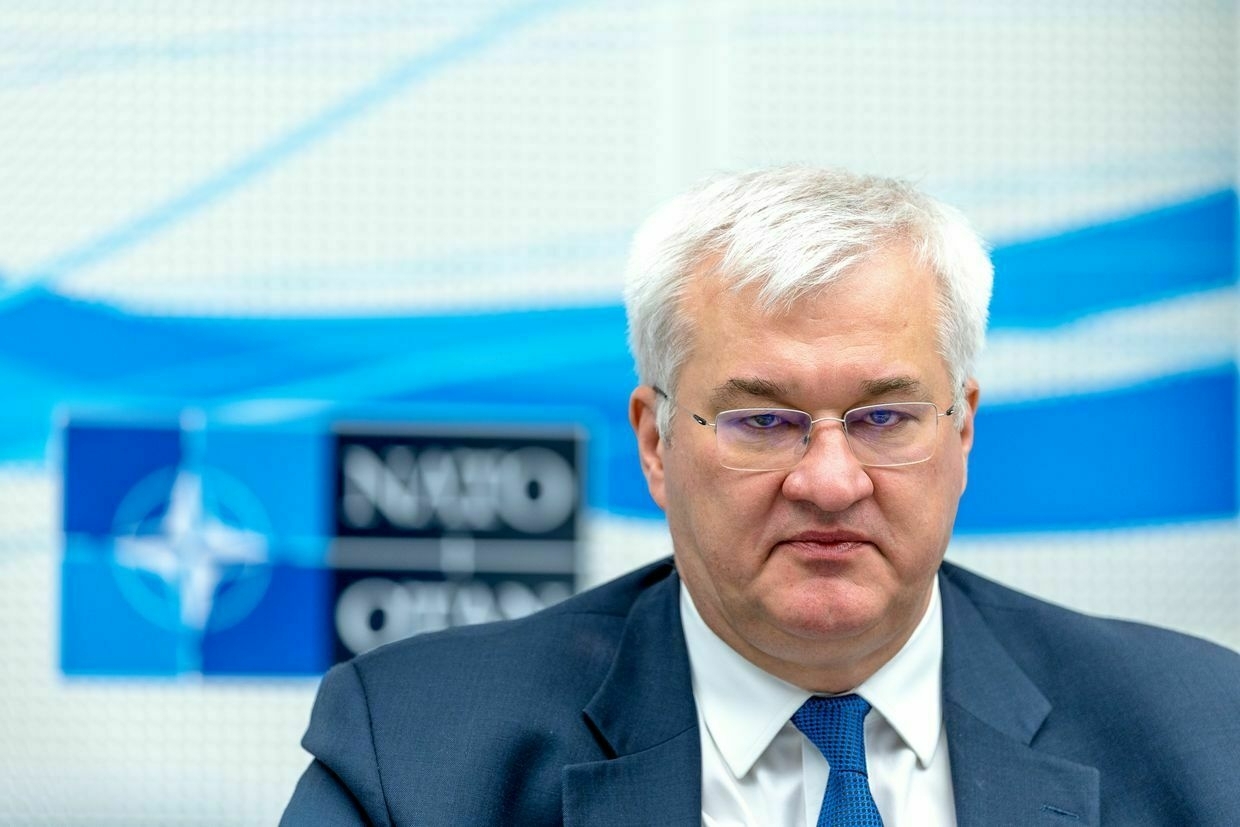
Ukraine approves Termit ground drone for battlefield deploymentUkraine’s Defense Ministry has officially approved the new domestically produced unmanned ground vehicle, known as the Termit, for front-line use, the ministry announced on June 21.
The tracked robot is a next-generation version of Ukraine’s existing ground-based unmanned systems already deployed across the front. These systems have supported operations by transporting supplies, conducting reconnaissance, and carrying explosives in contested areas.
Termit, the newest model in the series, features improved mobility and modularity. The drone can carry up to 300 kilograms and operates on various terrains thanks to its low profile, tracked design, and improved weight distribution.
Subscribe to Ukraine Daily newsletterNews from Ukraine in your inbox<span data-sanitized-id="ud-snippet-info" data-sanitized-class="ud-snippet__info"></span> <button data-sanitized-id="ud-snippet-subscribe-btn" data-sanitized-class="ud-snippet__form-btn"> <span data-sanitized-class="ud-snippet__form-label">Subscribe</span> </button> </div>Its traction battery system allows for several hours of continuous movement over dozens of kilometers. According to the Defense Ministry, Termit drones can be equipped with combat modules, used for medical evacuations, or for transporting specialized equipment as needed.
Ground drones such as Termit are being used more frequently to minimize soldier exposure to front-line risks. Since Russia's full-scale invasion in 2022, Kyiv has prioritized the development of unmanned systems across all domains — air, sea, and land.
President Volodymyr Zelensky has called for the production of at least 30,000 long-range drones in 2025, alongside expanded investment in strike-capable hybrids such as the Palianytsia and Peklo missile-drone platforms.
Russia ‘afraid to admit’ scale of losses, trying to hide by dumping soldiers’ bodies on Ukraine, Zelensky saysUkrainian authorities have confirmed that at least 20 of the bodies Russia returned as Ukrainian were actually Russian soldiers, President Volodymyr Zelensky said.The Kyiv IndependentTim Zadorozhnyy
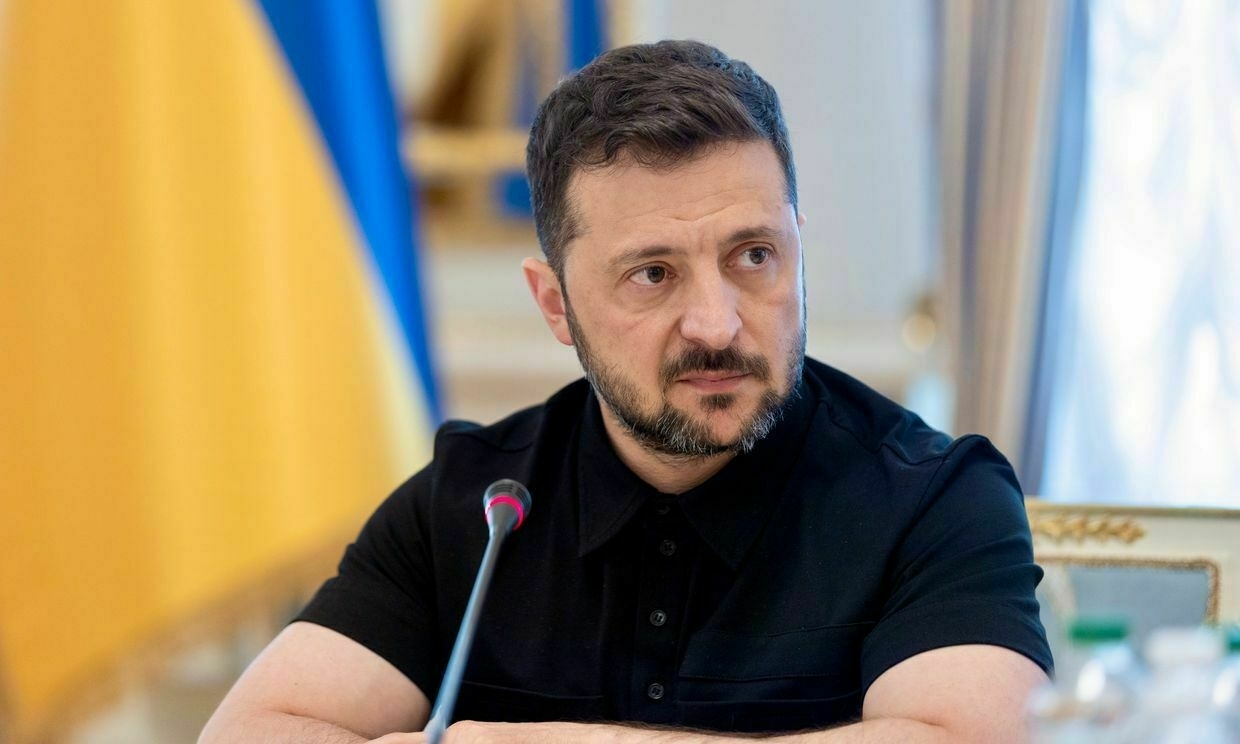
Ukraine's deep strikes cost Russia over $10 billion this year, Syrskyi saysUkrainian strikes deep inside Russian territory between January and May have cost Russia over $10 billion, including $1.3 billion in direct damage to industrial facilities and infrastructure, Commander-in-Chief Oleksandr Syrskyi told journalists on June 21.
The indirect damage caused by the disruption of Russian industrial activities is estimated at $9.5 billion, putting the cost-to-result ratio of Ukrainian deep strikes at 1:15, Syrskyi said at a briefing attended by the Kyiv Independent.
Kyiv has ramped up drone attacks against Russian military and industrial sites far behind the border as part of its DeepStrike strategy, seeking to undermine Moscow's ability to wage war.
The attacks targeted Russia's oil refining sector, the fuel and lubricants facilities, energy and transport support, and strategic lines of communication.
"Remember that during negotiations, the Russian side listed a halt to strikes against the oil refining industry as one of the conditions. This shows that our strikes are truly effective," Syrskyi said.
Oil and gas exports are among Russia's key revenue sources and play a crucial role in sustaining its war effort.
"Of course, we will continue (attacking deep inside Russian territory). We will increase the scale and the depth," the commander added, stressing that the attacks target solely military facilities.
Ukraine has increased the production of long-range drones with the support of Western partners and developed new tactics in striking Russia behind the lines.
In one of the most audacious attacks, the Security Service of Ukraine (SBU) on June 1 struck dozens of Russian bombers and other aircraft across four different air bases in an operation dubbed Spiderweb. SBU drones were smuggled to Russia in trucks and then deployed to attack airfields thousands of kilometers from the Russia-Ukraine border.
Russia’s Oreshnik missile production can be halted by ‘urgent’ sanctions, Zelensky saysRussia first launched the experimental Oreshnik missile in an attack against Dnipro on Nov. 21.The Kyiv IndependentKateryna Denisova
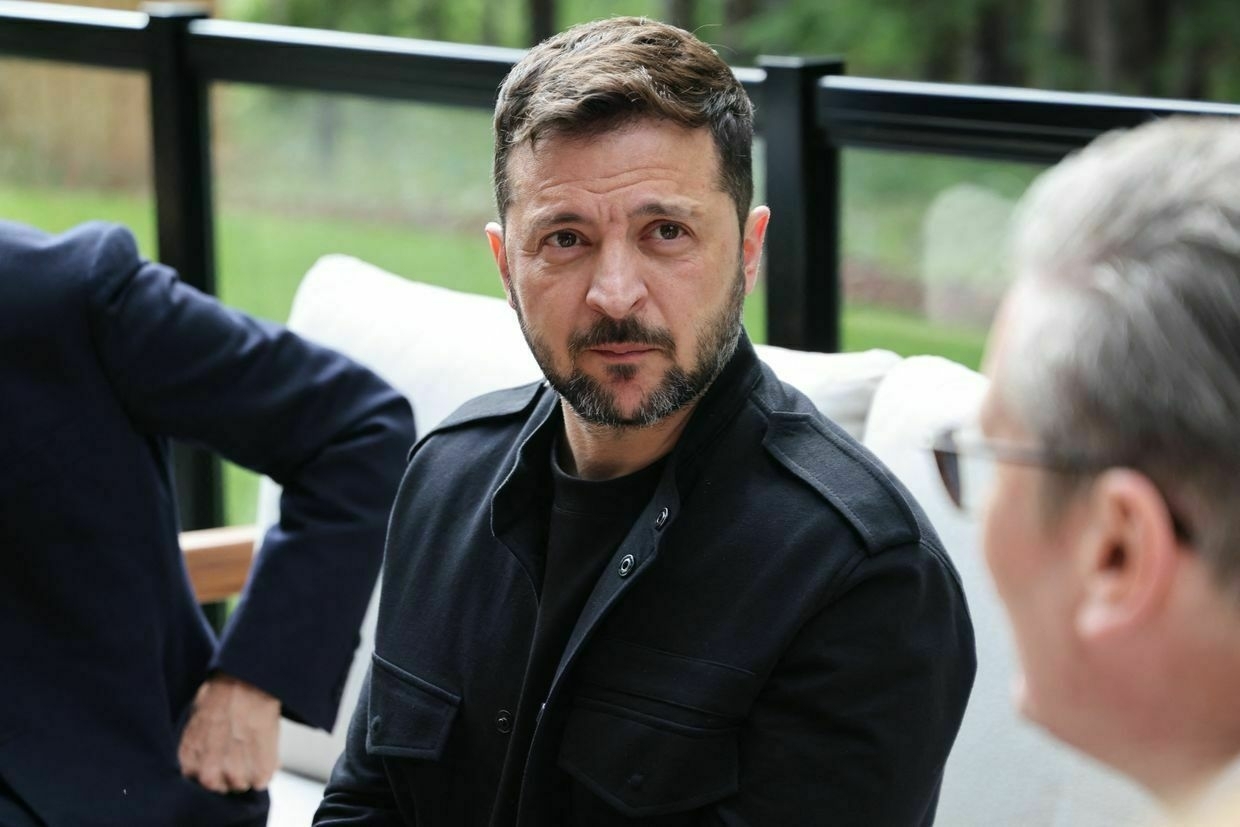
Ukraine destroys 80% of Russian drones despite air defense missile shortage, Syrskyi saysUkraine is downing approximately 82% of Russian Shahed-type drones during Russian massive aerial attacks on Ukrainian cities despite a serious shortage of surface-to-air missiles, Commander-in-Chief Oleksandr Syrskyi told journalists on June 21.
Ukraine needs to have many times more surface-to-air missiles and anti-aircraft missile systems to ensure reliable defense of cities and critical infrastructure facilities, Syrskyi said at a briefing attended by the Kyiv Independent.
Russian attacks against Ukraine have surged in May and June as Moscow has launched several record-breaking mass strikes against Kyiv and other cities. The latest attack on June 17, primarily targeting the capital, killed 30 people and injured over 170.
"Since we have to save anti-aircraft guided missiles, mobile fire groups are the priority for defending from the Shaheds," Syrskyi said.
Despite Russia's changing tactics of massive air attacks, mobile fire groups account for the largest share of destroyed drones. The fire groups' effectiveness is up to 40%, according to Syrskyi.
Aviation is used almost every night to repel Russian air attacks, featuring the Defense Forces' helicopter crews and fighter aircraft of the Air Force, which includes U.S.-made F-16 and French Mirage-2000 aircraft.
"One promising area in countering Shaheds is the use of light aircraft," Syrskyi said, adding that "there are new projects thanks to financial and material assistance from our foreign partners."
"We are receiving modern light aircraft, which have modern weapons and navigation, which will increase the effectiveness in countering Russian strike drones."
Syrskyi stressed that "cooperation with partners, primarily Canadian ones, enables us to obtain modern surveillance and targeting systems that enhance the combat capabilities of our helicopters."
Regular Air Force reports show that the majority of Russian drones are intercepted during overnight attacks, some by air defenses and others by electronic warfare systems. However, these reports do not always clarify how many of the intercepted drones were actual attack drones and which were only decoys launched to overwhelm air defenses.
Ukraine works to develop other means of protection against Russian air raids in the non-front-line oblasts as it scales up the use of interceptor drones.
Syrskyi said that over five types of interceptor drones have been cleared for use in the army, and new units are being formed and taught to operate them. Some of these Air Force units have already downed dozens of Russian Shaheds, according to Syrskyi.
The effective use of interceptor drones is hindered by the lack of tactical radar systems in Ukraine, such as Israel-made radars by RADA Electronic Industries and their analogues.
Syrskyi said the Ukrainian army needs hundreds of tactical radar systems instead of the few currently in service for radar reconnaissance, which is key to the use of interceptor drones.
Russia has over 1,950 strategic missiles, Ukraine’s military intelligence tells mediaRussia produces up to 195 missiles per month, Ukraine’s military intelligence agency (HUR) told the news outlet RBC-Ukraine.The Kyiv IndependentAbbey Fenbert
